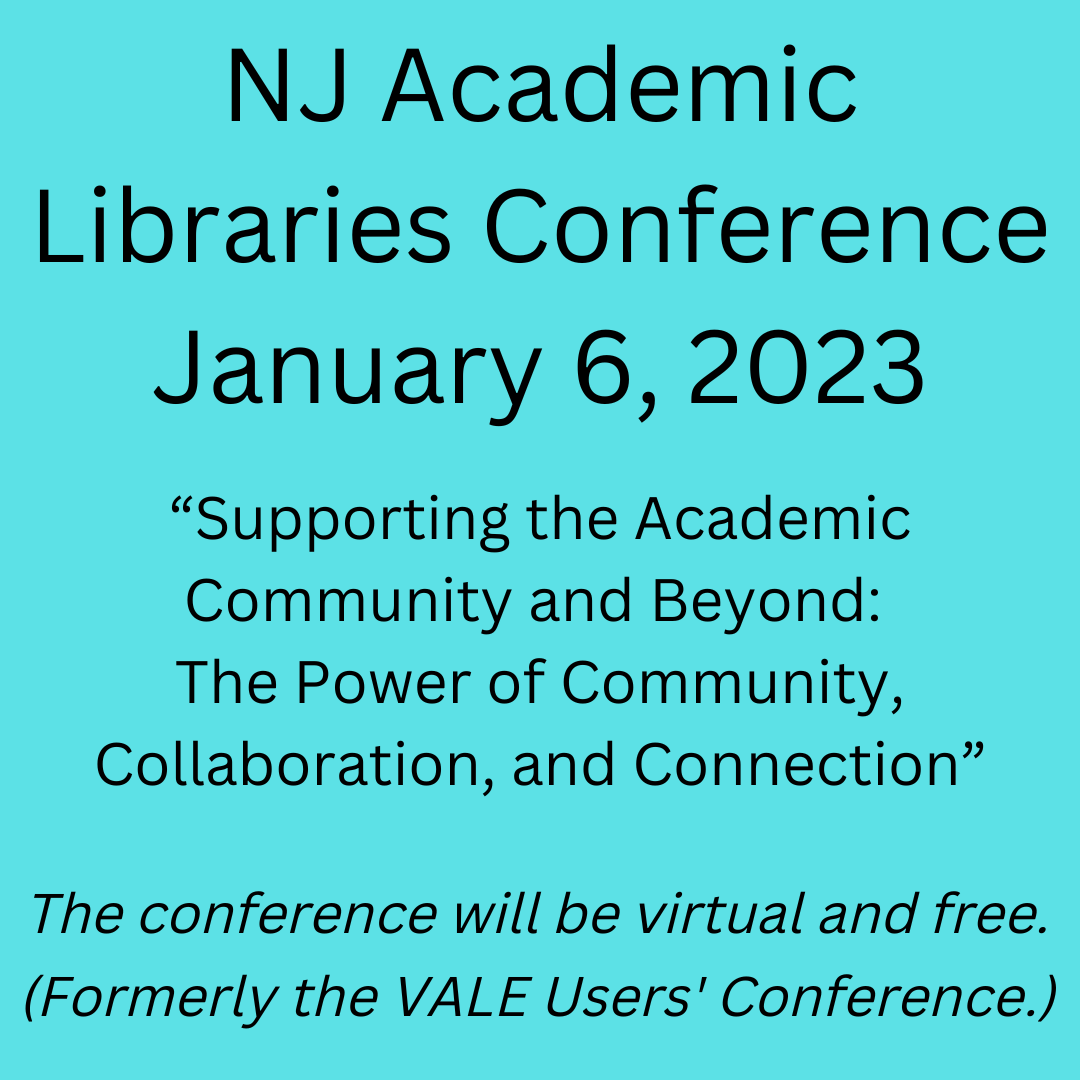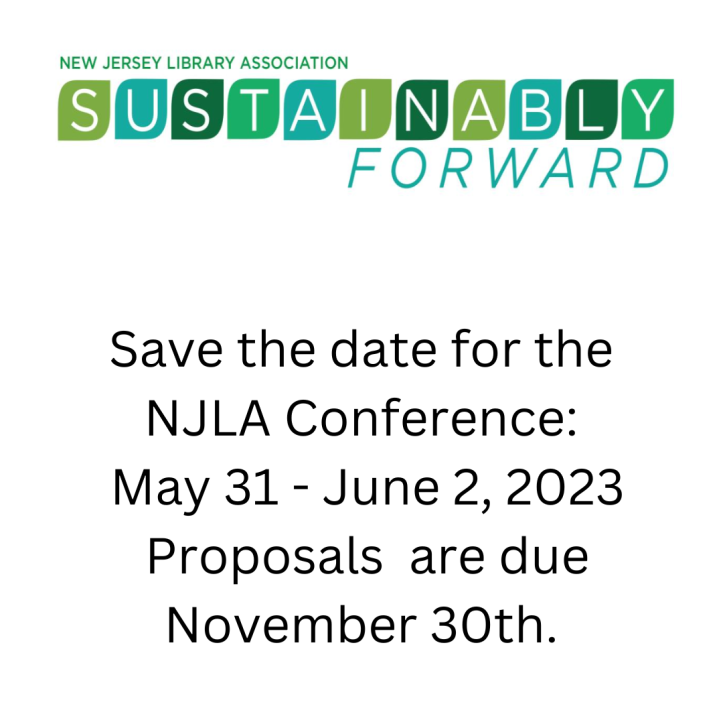Fall 2022 CUS/ACRL-NJ Newsletter

From the President
By Nicole Potdevin
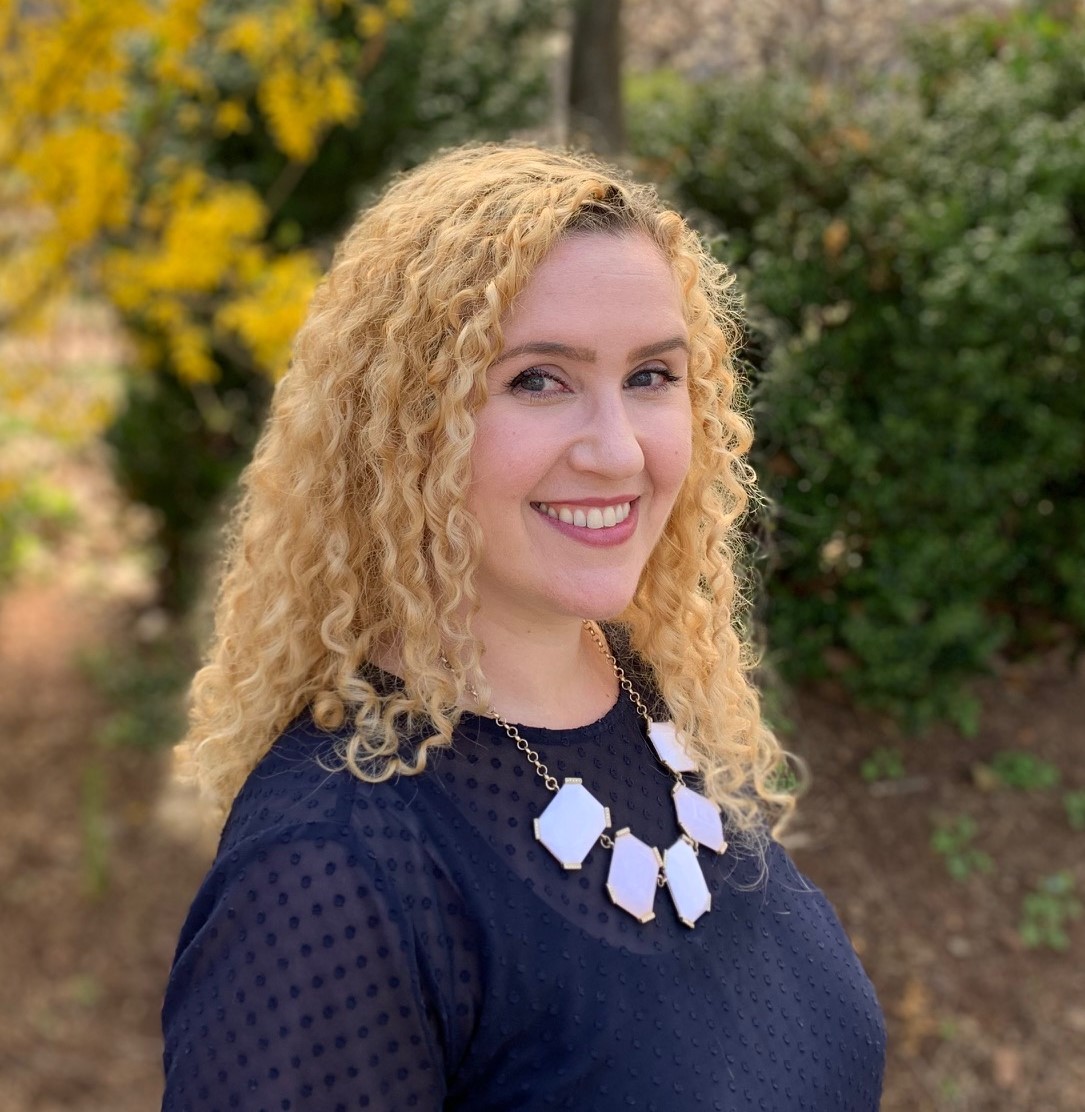 It has taken over two years, but this semester has finally begun to feel like normal again…or at least like the “new normal”. This fall, most of our libraries have been tasked with a new balancing act – providing the virtual meetings, events, instruction, and materials that our communities have become accustomed to while also again offering all our pre-pandemic in-person services. I have been so impressed with the continued resilience and adaptability of my fellow academic librarians as we not only adjust to this “new normal” but also continue to do amazing things both at our institutions and within NJLA-CUS/ACRL-NJ. I would like to use this space to highlight some of the work our group has been doing and some exciting things coming up.
It has taken over two years, but this semester has finally begun to feel like normal again…or at least like the “new normal”. This fall, most of our libraries have been tasked with a new balancing act – providing the virtual meetings, events, instruction, and materials that our communities have become accustomed to while also again offering all our pre-pandemic in-person services. I have been so impressed with the continued resilience and adaptability of my fellow academic librarians as we not only adjust to this “new normal” but also continue to do amazing things both at our institutions and within NJLA-CUS/ACRL-NJ. I would like to use this space to highlight some of the work our group has been doing and some exciting things coming up.
Over the summer, our Reference and User Education Committee and Assessment Committee teamed up to co-host their annual Summer Workshop. This year’s title was “Diving Right In: Showcasing Our Adaptability to Change”. The workshop was very well attended, and I know I learned a great deal from the fantastic presentations and discussions. We also created a new committee, the Electronic Resources Committee, to promote discussion and information-sharing on topics pertaining to electronic resources.
We held our annual Open Membership meeting over Zoom on September 9th, 2022. The theme, “Open for All”, celebrated inclusiveness within our group as well as collaborative relationships with other organizations. The meeting included presentations by our committee chairs as well as Jessica Trujillo from NJLA, Ralph Bingham from LibraryLinkNJ, Melissa Lena from VALE, Steve Chudnick from the Open Textbook Collaborative and OpenNJ Platform, Ewa Dziedzik-Elliott from NJASL, and Alyssa Valenti in her role as co-chair of the NJ Academic Libraries Conference. It was great to see so many familiar faces as well as several new ones who have since volunteered to join some of our committees. If you were not able to attend the meeting but are interested in joining one of the NJLA-CUS/ACRL-NJ committees, you can find more information as well as a sign-up form on the Membership page on our website.
Our Conference Committee has been working hard to organize the 2023 New Jersey Academic Libraries Conference, to be held virtually on Friday, January 6th, 2023. The theme this year is “Supporting the Academic Community and Beyond: The Power of Community, Collaboration, and Connection”. We have received some really fantastic proposals, so please be sure to check the conference website in the coming weeks for the program as well as the link to register to attend.
Academic librarians are also involved in the planning of the NJLA Conference, to be held May 31st-June 2nd, 2023 at Harrah’s in Atlantic City. Proposals related to this year’s theme, “Sustainably Forward”, are being accepted through November 30th, 2022. There will be a NJLA-CUS/ACRL-NJ luncheon as well as the presentation of our Distinguished Service, Research, Technical Services, and Technology Innovation awards, not to mention many presentations relevant to academic librarianship, so I hope to see many of you there.
In spite of the challenges we are facing this academic year, we as a profession have been able to adapt and thrive. I am so proud of the phenomenal work being done by our members and committees to serve our communities, further our profession, and build relationships with other groups and organizations. I look forward to seeing everything that we accomplish, both individually and together, over the rest of the academic year!
Nicole Potdevin is the Associate University Librarian for User Services at Fairleigh Dickinson University. She can be reached at potdevin@fdu.edu.
In This Issue...
- From the President
- Announcements
- Dr. Consuella Askew Named Vice President for University Libraries and University Librarian
- VALE Updates
- Maggie Harris-Clark Retires after 50 Years of Service
- NJ Academic Libraries Conference
- TCNJ's Gitenstein Library Awarded Grant to Preserve and Organize Historic Archive
- Research Sprints: Focused Academic Librarian-Faculty Partnerships
- NJLA Conference
- From the Newsletter Archives
- Musicians, Too: Musical Performance as an Outreach Opportunity
- RVCC Library Classroom Facelift
- Union College Library Asian Calligraphy Workshop
- Teamwork in Libraries: 1R and 3Cs
- Theory into Practice
- Union County College, MacKay Library Hosts National Poetry Month Event
- Rutgers University Libraries Announce Launch of Library Mobile App
- George T. Potter Library Celebrates the Inauguration of Ramapo College President
- Rutgers University Libraries Announcements
- Academic Freedom in an Age of Censors: Local AFT President and Librarian Partner in Banned Books Lecture Series
- Banned Books at Bergen
- SCARLA's Banned Books Read-Out
Dr. Consuella Askew Named Vice President for University Libraries and University Librarian
President Jonathan Holloway and Executive Vice President Prabhas Moghe make historic appointment for new leader of Rutgers University Libraries
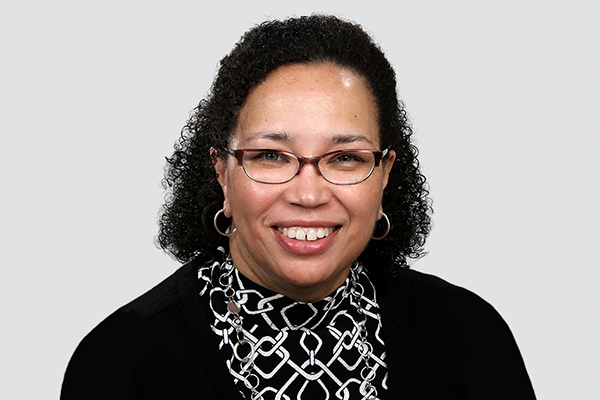 Rutgers University has selected Dr. Consuella Askew as its new Vice President for University Libraries and University Librarian. On July 18, 2022, she became Rutgers’ 15th University Librarian and the first person of color in the institution’s 256-year history to hold the position.
Rutgers University has selected Dr. Consuella Askew as its new Vice President for University Libraries and University Librarian. On July 18, 2022, she became Rutgers’ 15th University Librarian and the first person of color in the institution’s 256-year history to hold the position.
“President Holloway and I believe that under Dr. Askew’s leadership, Rutgers is well suited to chart a strategic direction for Rutgers University Libraries, especially with a view to closely aligning the libraries to enhance the goals of academic units,” Executive Vice President for Academic Affairs Prabhas Moghe said. “A part of this work will involve centering the Libraries at the heart of our community and our commitment to diversity, equity, inclusion, and belonging; optimizing the Libraries’ collections, personnel, and services to enrich the teaching, learning, and research that occur across the University; establishing organizational coherence across the Libraries; and developing a strategic plan—all values that President Holloway has articulated.”
Rutgers University Libraries is a core component of the University’s academic mission. The Libraries’ faculty and staff provide access to vast and unique resources, archives, and expertise to foster interdisciplinary collaboration, advance faculty and student teaching and research, and empower student success. Rutgers University Libraries rank among the nation’s top research libraries with more than five million volumes, over one million digital resources, and 26 integrated libraries, centers, and reading rooms throughout Rutgers campuses and chancellor-led units.
Leading the Way to Library Excellence
Askew brings to Rutgers a rich set of experiences and a library career that spans nearly 30 years. She is a forward-looking academician who has served as Interim Vice President for University Libraries and University Librarian since May 2021. In her previous role as the Associate University Librarian for Rutgers–Newark, Askew led Dana Library through a strategic planning process, a multimillion-dollar renovation, and an organizational restructuring to encourage innovation, community engagement, and operational excellence.
A Commitment to Higher Education
Prior to Rutgers, Askew worked in various educational settings, such as public schools, Historically Black Colleges and Universities (HBCUs), Hispanic Serving Institutions (HSIs), community colleges, and private and public institutions. Askew served as the Associate Dean for Public Services at Florida International University Libraries and held leadership positions at the City University of New York (CUNY), where she was appointed the inaugural Chief Librarian for the CUNY Graduate School of Journalism. She was also a member of the research and development team that created LibQUAL+ for the Association of Research Libraries. This industry-standard tool is used to assess user perceptions of library service quality and has been adopted by over 1,300 libraries worldwide, including Rutgers. An active contributor to the academic libraries profession, Askew serves on the executive board of the HBCU Libraries Alliance and the editorial board for the award-winning journal portal: Libraries and the Academy. Askew has published and presented widely on cultivating library leadership, developing a culture of library assessment, and adapting library services to meet evolving user needs.
Askew holds a bachelor’s degree in English from Spelman College and a master’s degree in library and information studies from the University of North Carolina. She earned her doctoral degree in higher education from Florida International University. She is also an alumna of multiple prestigious library leadership programs, including UCLA’s Library Senior Fellows Program, the longest-standing formal leadership development program for librarians in the country.
VALE Updates
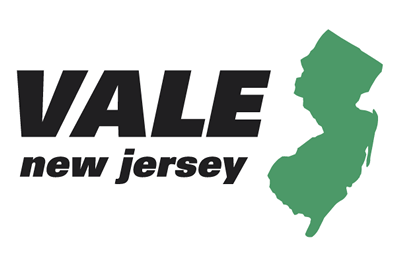
As of October, Joe Toth is serving as Interim Program Manager at VALE. Joe has worked at Ocean County College and Stockton University and has held several VALE committee positions over the last decade.
TCNJ's Gitenstein Library Awarded Grant to Preserve and Organize Historic archive
TCNJ’s Gitenstein Library was recently awarded $311,594 from The National Park Service’s Save America’s Treasures grant program, in partnership with the National Endowment for the Arts, the National Endowment for the Humanities, and the Institute for Museum and Library Services.
The funds will help the college create a digital preservation infrastructure for its Archives and provide for the physical preservation and organization of more than 200 linear feet of historical records. The funds also will help establish a hub of research resources from New Jersey’s six normal schools (TCNJ, Kean University, Montclair State University, New Jersey City University, Rowan University, and William Paterson University), which represent the earliest days of the state’s teacher training landscape.
“Thanks to the Save America’s Treasures grant, TCNJ will be able to greatly increase the public discovery and archival preservation of many of the materials in its archives,” said Deb Schiff, archivist and special collections librarian at the Gitenstein Library. “Notably, our collections that show how education has evolved in the United States will be much more accessible.”
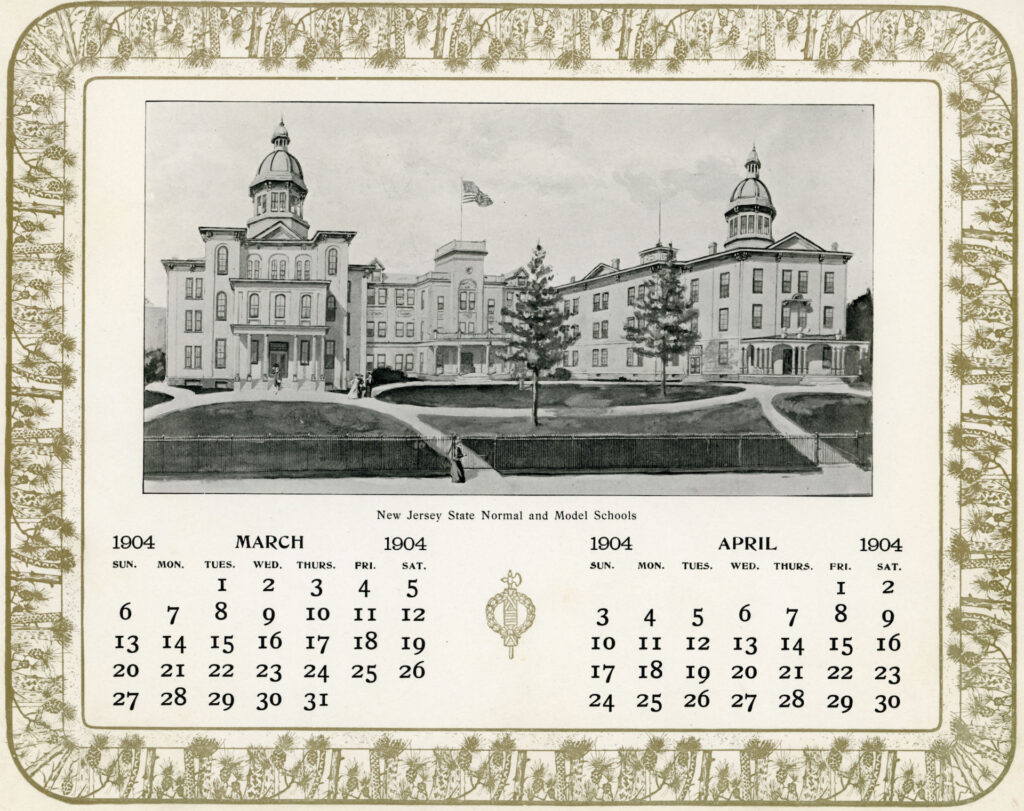
A page in a 1904 New Jersey State Normal School and Model School calendar, showing a painting of the original school buildings in Trenton.
Items in TCNJ’s archives and special collections date from the college’s founding as the New Jersey State Normal School in 1855 up to present day, although some rare book holdings date back as far as the 1740s. The collection documents the American public elementary school experience over 166 years as well as trends in teacher training during the same period.
“TCNJ’s New Jersey State Normal Schools Hub will create a single online research destination for researchers seeking information on early American teaching school practices,” Schiff said. “Unifying Normal Schools records from across the state in a virtual space will allow researchers to gain a broader view of how the state helped to influence later Normal Schools and educators across the country. We hope this novel project will provide a model for other states.”
Additionally, the Trenton Free Public Library will contribute materials to the New Jersey Normal Schools Hub. It is expected that other New Jersey entities holding Normal Schools records will participate, as well.
“Through private and public investments, the Save America’s Treasures program supports community-based preservation and conservation work on some of our nation’s most important collections, artifacts, structures, and sites for the benefit of future generations,” said NPS Director Chuck Sams.
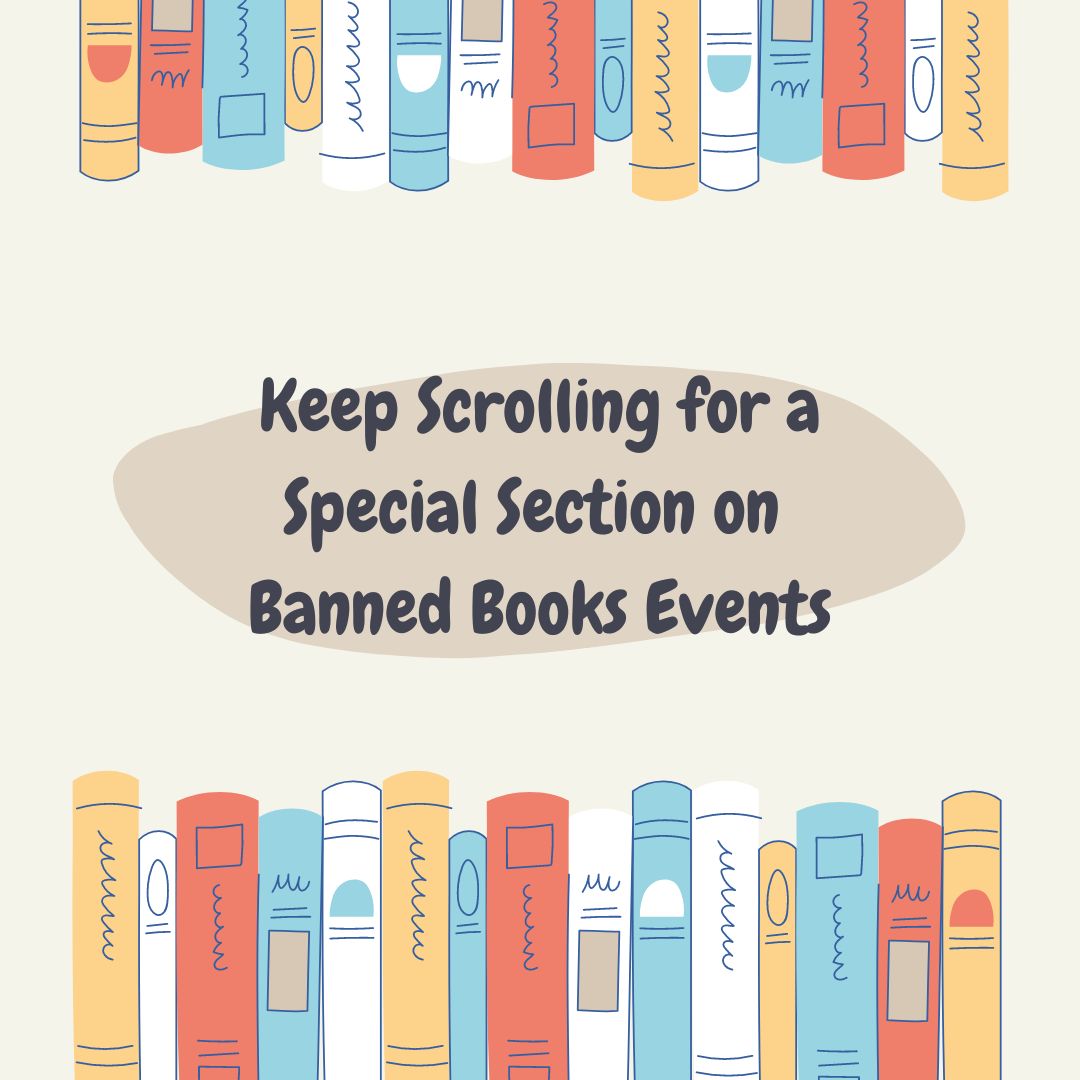
From the Newsletter Archives
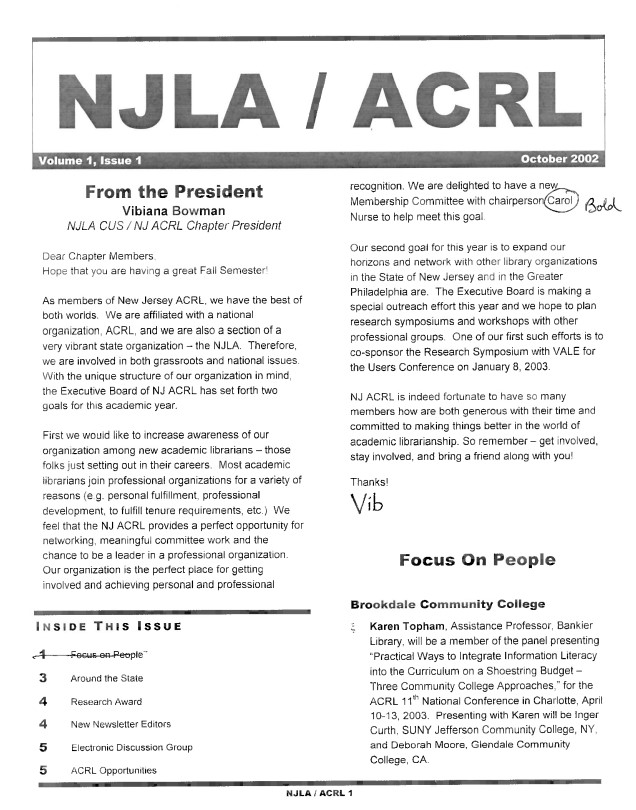 Much like today, in this issue from Fall 2002 our organization made an appeal for new members and reminded the membership of its benefits: “networking, meaningful committee work, and the chance to be a leader in a professional organization.” The newsletter showcases the national recognition of the work of NJ librarians. We hope you enjoy stepping into our past with this issue.
Much like today, in this issue from Fall 2002 our organization made an appeal for new members and reminded the membership of its benefits: “networking, meaningful committee work, and the chance to be a leader in a professional organization.” The newsletter showcases the national recognition of the work of NJ librarians. We hope you enjoy stepping into our past with this issue.
Announcements
Caldwell University
In October, Victoria Swanson was hired as Library Director at Jennings Library at Caldwell University. Previously, she was Interim Library Director at Caldwell.
In November, Christina Getaz was hired as Instruction and Assessment Librarian at Jennings Library at Caldwell University. She was previously Temporary Librarian at Caldwell.
Centenary University
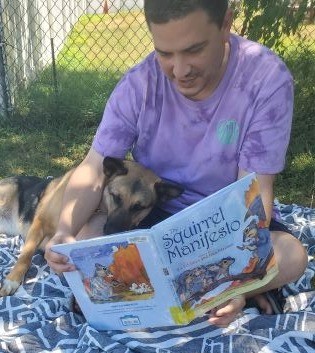 Nick Ferrelli, MLS, is the new Instruction & Outreach Librarian for Taylor Memorial Library at Centenary University. Nick just moved to New Jersey from Long Island, NY where he previously worked as Collections Manager for Adelphi University Libraries. His previous major responsibilities included eResources management, collection analysis and building, and renovating spaces and facilities. Now he is excited to bring his knowledge of scholarly resources to Centenary University to bridge students’ research needs with appropriate sources. He received his MLS from Queens College and is currently near completion of his second masters in Curriculum Development and Instructional Technology. In his spare time, he enjoys hiking, and gaming (board and video).
Nick Ferrelli, MLS, is the new Instruction & Outreach Librarian for Taylor Memorial Library at Centenary University. Nick just moved to New Jersey from Long Island, NY where he previously worked as Collections Manager for Adelphi University Libraries. His previous major responsibilities included eResources management, collection analysis and building, and renovating spaces and facilities. Now he is excited to bring his knowledge of scholarly resources to Centenary University to bridge students’ research needs with appropriate sources. He received his MLS from Queens College and is currently near completion of his second masters in Curriculum Development and Instructional Technology. In his spare time, he enjoys hiking, and gaming (board and video).
Fairleigh Dickinson University
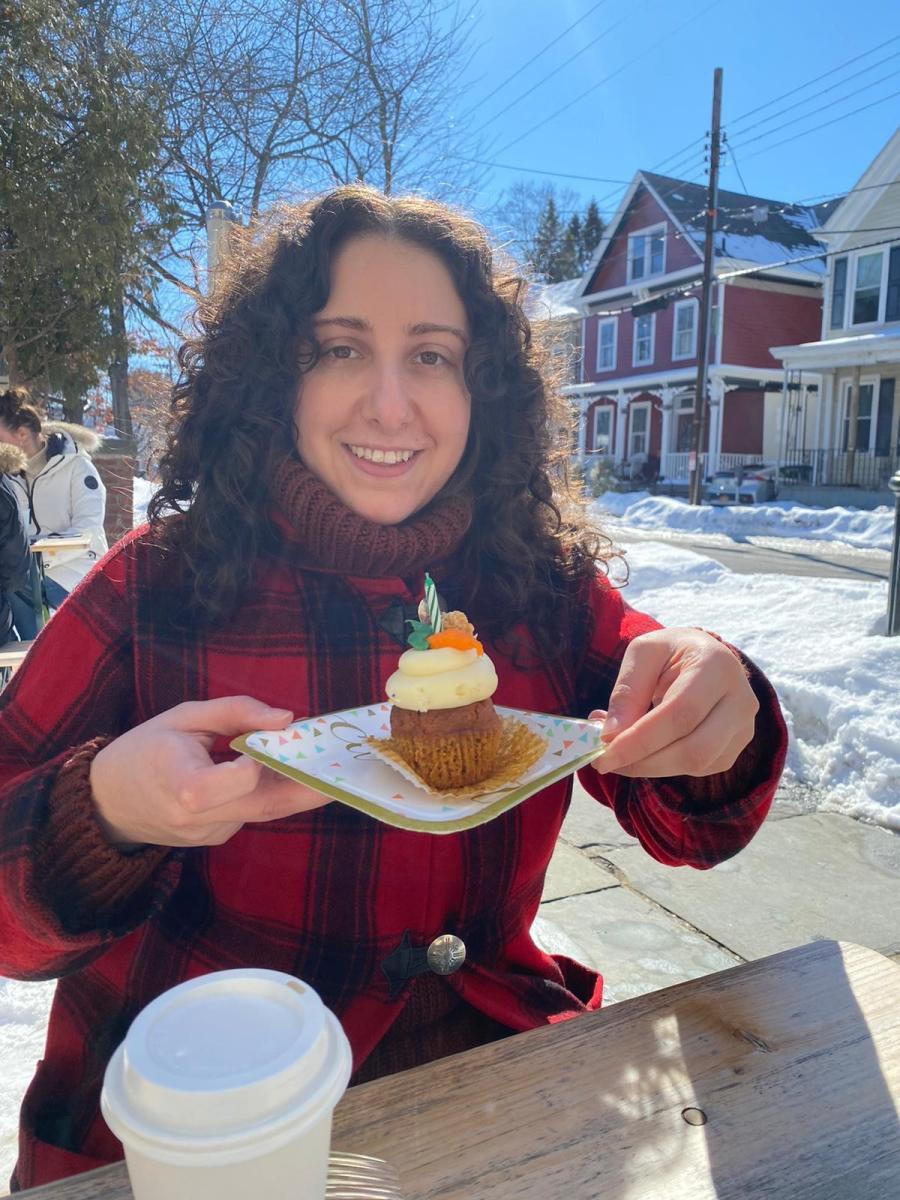 Jordan Evans-Boyajian-Torres joined the Fairleigh Dickinson University Library as a Research
Jordan Evans-Boyajian-Torres joined the Fairleigh Dickinson University Library as a Research
and Instruction Librarian in August 2022. She received her MLIS from San Jose State University
in the Fall of 2021 while working with Seton Hall University and SUNY Purchase College as an
adjunct librarian. Her background is in the arts, giving her experience with exhibitions, events,
and design. She is committed to professional development and serving the underrepresented. In
her spare time, she works on a genocide and diaspora archive directory with the hopes of
allowing those in these groups to do more thorough research and share resources about their
ethnic roots.
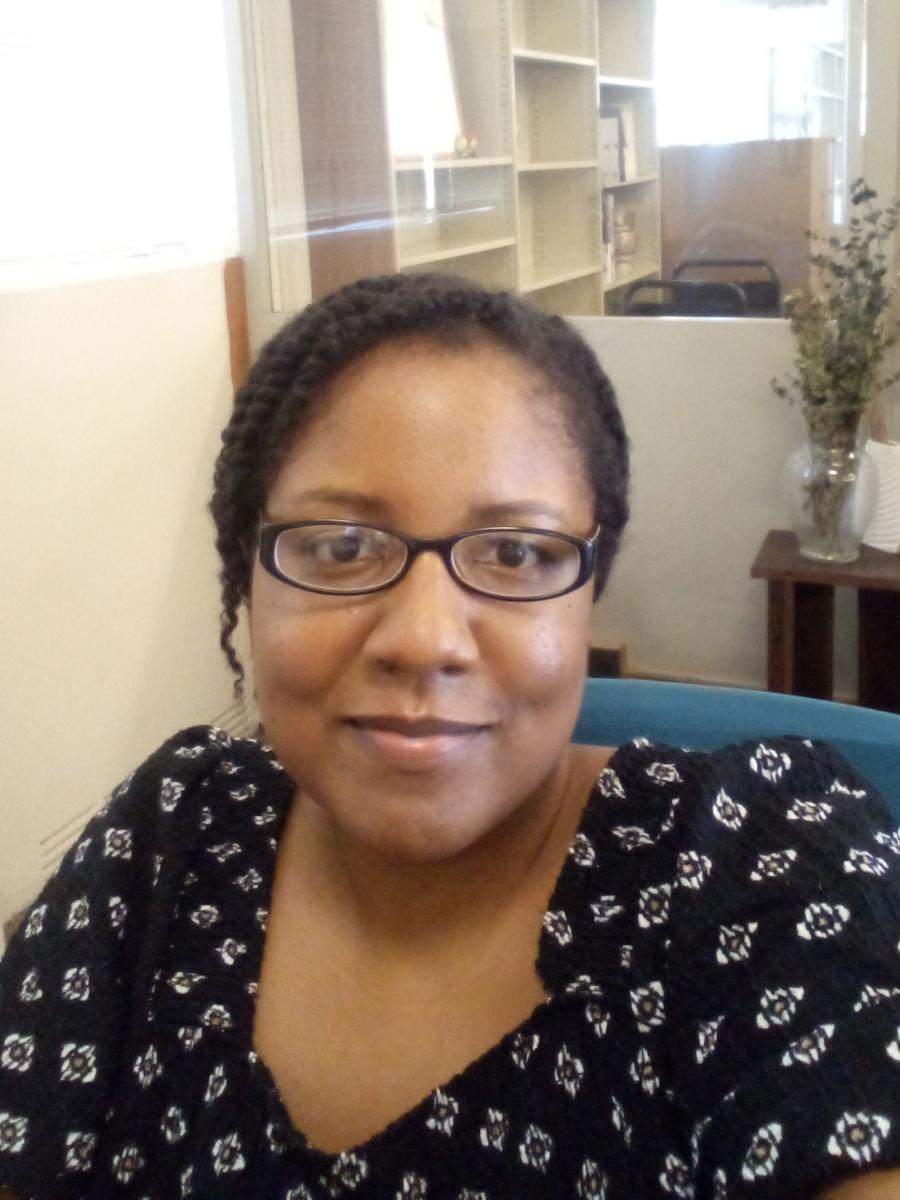 Melissa John joined the Fairleigh Dickinson University Library as a Research and Instruction
Melissa John joined the Fairleigh Dickinson University Library as a Research and Instruction
Librarian in July 2022. Prior to FDU, Melissa worked as a Branch Manager at Somerset County
Library System of New Jersey, where she also worked as a Circulation Supervisor and Teen
Services Librarian. Melissa has a range of academic experience from working at Rutgers
University Libraries and Union County College, including reference, instruction, special
collections, archives, and access services. She is thrilled to join FDU.
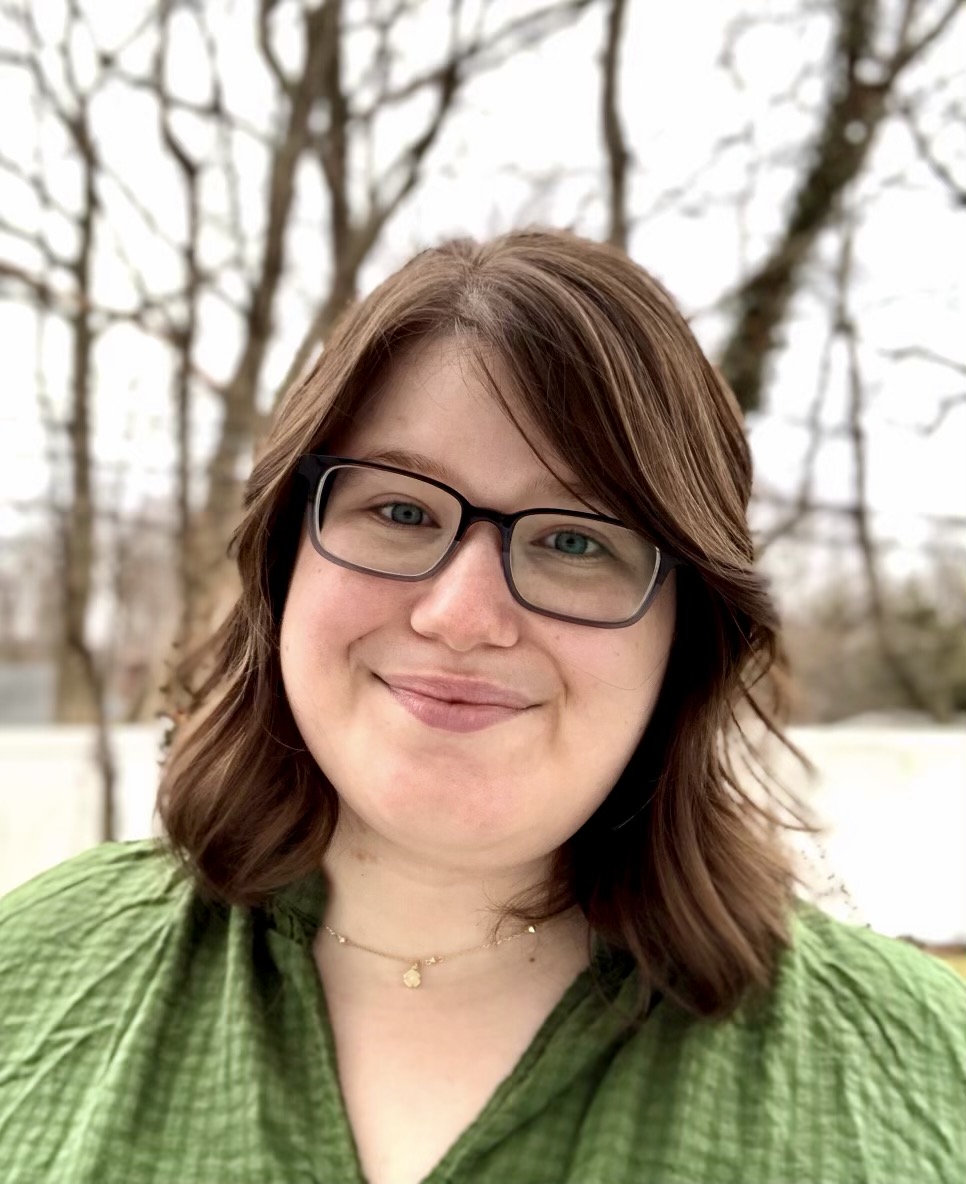
Fairleigh Dickinson University. Leanne previously served as a Research and Instruction
Librarian at the FDU Metropolitan Campus since November 2021. In her new position, Leanne is responsible for managing the FDU digital archive and repository, as well as assisting students and
faculty with OER requests, copyright questions, and publishing efforts.
New Jersey Institute of Technology
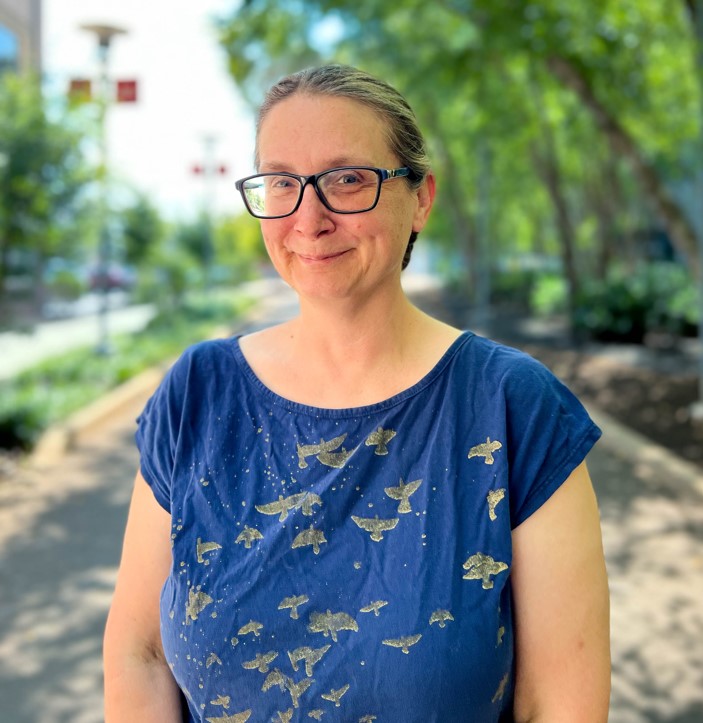 Jill Lagerstrom joined Robert W. Van Houten Library in June of 2022 as a Research and Instruction Librarian. Prior to working at NJIT, Jill was the Chief Librarian at the Space Telescope Science Institute, Science Reference Librarian at NASA Goddard Space Flight Center and Sci-Tech Branch Manager at The Catholic University of America. She has an AB from the University of Chicago, MLS from Rutgers and will soon complete a Masters in Instructional Design from Seton Hall University. In her spare time, Jill enjoys playing banjo with her band “The Kitchen Girls” and excursions to LIberty Science Center with her nine year old son.
Jill Lagerstrom joined Robert W. Van Houten Library in June of 2022 as a Research and Instruction Librarian. Prior to working at NJIT, Jill was the Chief Librarian at the Space Telescope Science Institute, Science Reference Librarian at NASA Goddard Space Flight Center and Sci-Tech Branch Manager at The Catholic University of America. She has an AB from the University of Chicago, MLS from Rutgers and will soon complete a Masters in Instructional Design from Seton Hall University. In her spare time, Jill enjoys playing banjo with her band “The Kitchen Girls” and excursions to LIberty Science Center with her nine year old son.
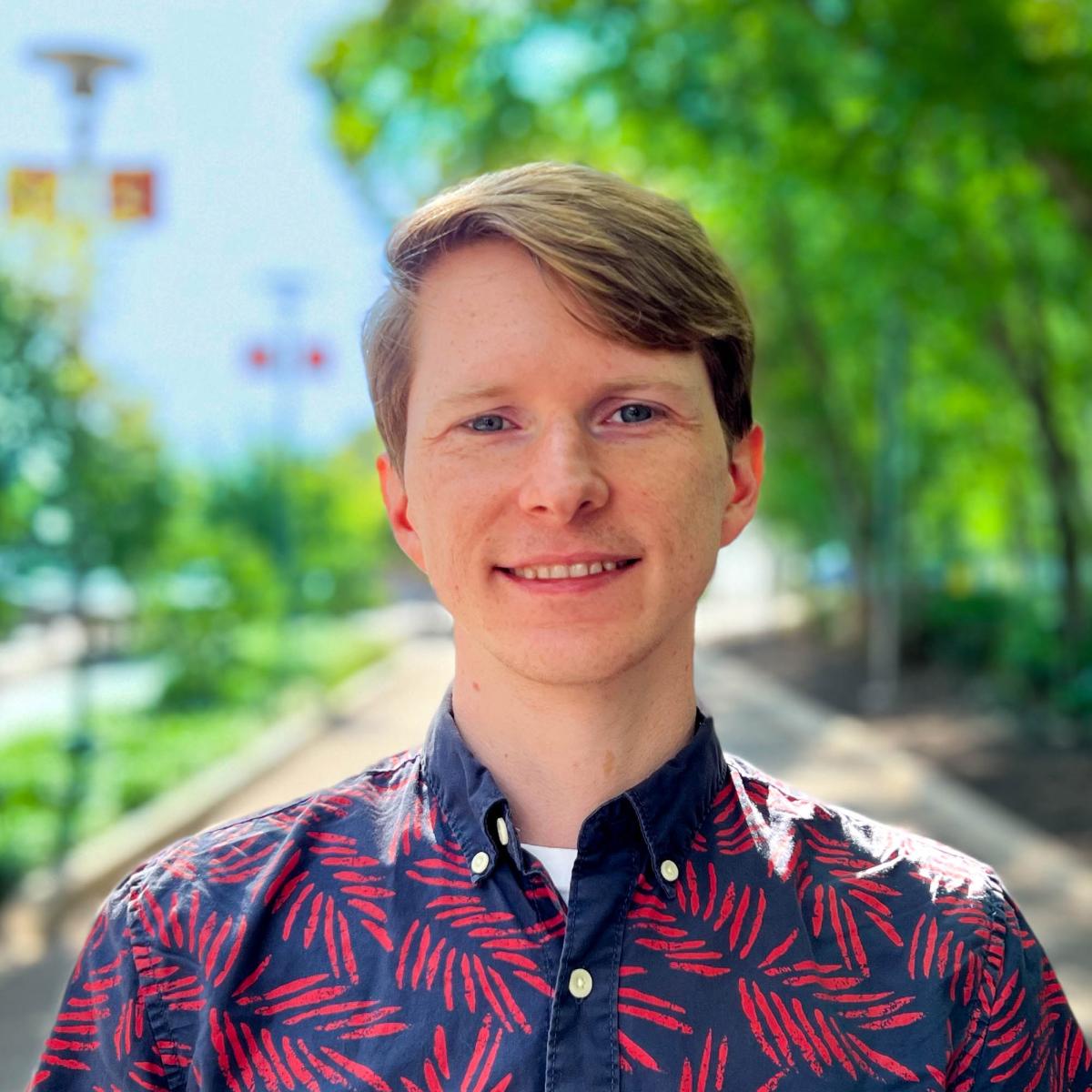 Kennedy Jones joined the Barbara and Leonard Littman Library in July 2022 as the Librarian for Architecture, Art and Design. He came to NJIT after graduating from Indiana University Bloomington where he received dual masters degrees in art history and librarianship. In his new role he will be providing reference services and support in programing for the Littman Library, as well as leading information literacy sessions for students of the Hillier College of Architecture and Design. Kennedy is passionate about his subject areas and excited to help students hone their research skills, so that they can have the best possible academic experience.
Kennedy Jones joined the Barbara and Leonard Littman Library in July 2022 as the Librarian for Architecture, Art and Design. He came to NJIT after graduating from Indiana University Bloomington where he received dual masters degrees in art history and librarianship. In his new role he will be providing reference services and support in programing for the Littman Library, as well as leading information literacy sessions for students of the Hillier College of Architecture and Design. Kennedy is passionate about his subject areas and excited to help students hone their research skills, so that they can have the best possible academic experience. 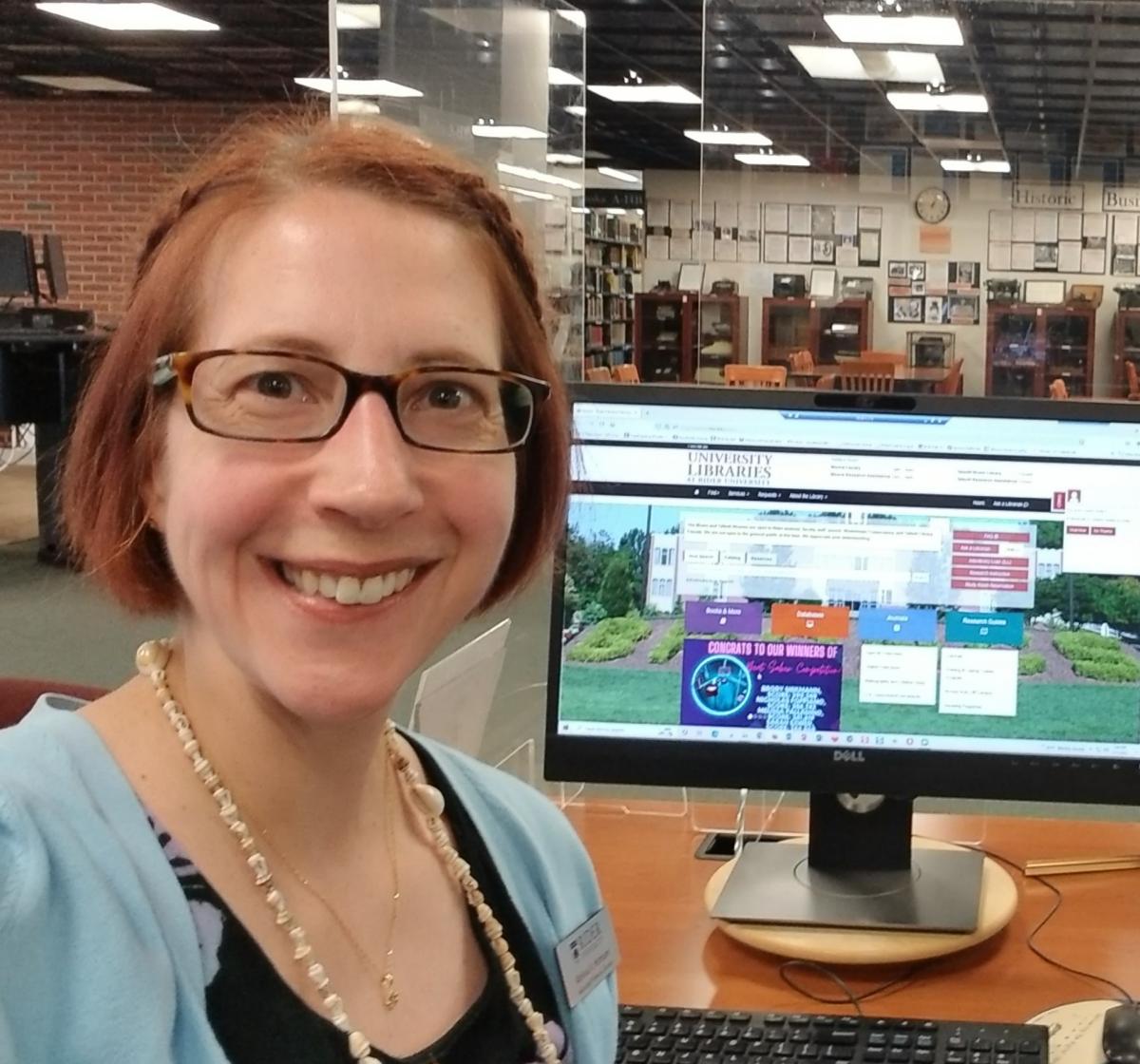
Rider University
Prof. Melissa A. Hofmann was promoted to Professor-Librarian.
Rutgers University
Rutgers University Libraries have so many announcements that we gave them their own section below! Scroll down the newsletter to read all about their articles, books, presentations, and comings and goings.
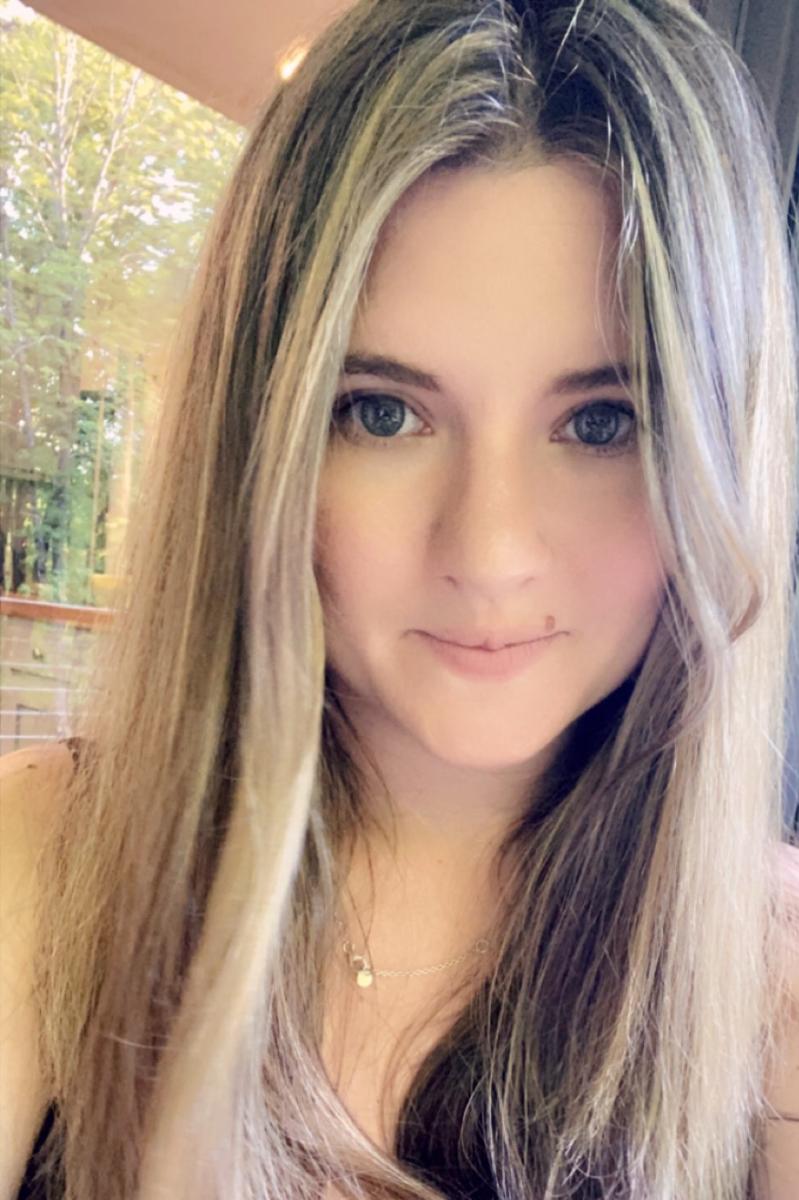 Union College
Union College
Emma Trevena joined Union College as a Librarian at the Union Campus.
 Casey Williams joined Union College as a Librarian at the Cranford Campus.
Casey Williams joined Union College as a Librarian at the Cranford Campus.
Maggie Harris-Clark Retires after 50 Years of Service
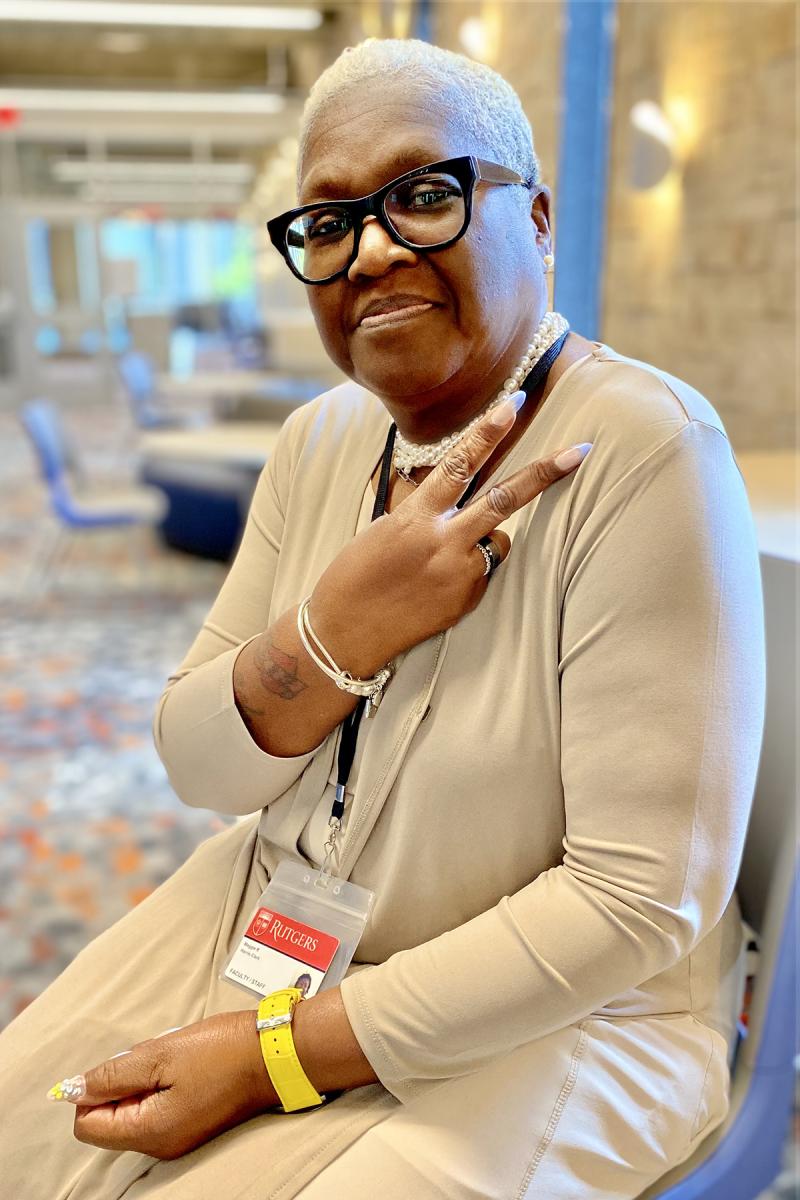 After an extraordinary 50 years of service to the John Cotton Dana Library, Maggie Harris-Clark retired on July 1, 2022.
After an extraordinary 50 years of service to the John Cotton Dana Library, Maggie Harris-Clark retired on July 1, 2022.
Maggie began working at Rutgers University in January 1972. William T. Cahill was governor of New Jersey, and Kenneth A. Gibson was Mayor of Newark, the first African American Mayor of Newark. Edward Bloustein was president of Rutgers University, and Horace Depodwin was Acting Provost, succeeded by James Young, the first Provost of Rutgers-Newark. Thomas Shaughnessy was the director of Dana Library. Maggie would work with several more directors: Eugene Neely (1981), Lynn Mullins (1987), Mark Winston (2008), and Consuella Askew (2015), as well as several interim directors (most recently, Jeanne Boyle and Rhonda Marker). Maggie also served under 10 University Librarians/Interim University Librarians.
Initially, Maggie worked at the Rutgers Law Library (Newark) in the Government Documents Department in a grant-funded position for six months. She then spent another six months at Dana Library in the Technical Services Department before Dr. Shaughnessy hired Maggie full time. Maggie worked for another long-time Dana Library employee, Madeline DeSantis, to maintain the card catalog and the shelf list. At that time, the library was using physical library cards to charge out books, but progress took over and advanced to using keypunch cards. Maggie transferred to the Circulation Department to work in course reserves for almost 10 years under the supervision of Mrs. Mann. About 20 years ago, Maggie was promoted to a Library Supervisor position in Circulation. Maggie is retiring as the head of Access Services at Dana Library. She has successfully navigated many changes from implementing the first automated circulation system through our current Ex Libris products. She has represented Dana Library on many cross-campus groups, including the Fulfillment Working Group.
Although Maggie spent all her years at Rutgers on the Newark campus, she could be counted on to participate in Libraries-wide events. She has many friends throughout the Libraries who will miss her irrepressible optimism and kindness.
Reflecting on her five decades at the university, Maggie fondly said, "Rutgers was my home away from home. I enjoyed working with my colleagues to advance the Libraries' mission and to ensure our faculty and students received excellent service."
This past June, President Jonathan Holloway and the university honored Maggie at the Rutgers Staff Service Recognition Reception. “I very much appreciated the recognition and respect,” Maggie remarked. “It's wonderful knowing that I made a difference in the Rutgers community.”
In retirement, Maggie plans to continue being active in her church and the Eastern Star. Her pastor has already announced her expanded role to the congregation. She has many plans for volunteer work and is looking forward to doing more at home. She is especially looking forward to the birth of her first great-grandchild in August. As busy as she will be, Maggie promises to keep up with her friends at Rutgers.
We wish Maggie a long and happy retirement and express our warmest appreciation for her many years of steadfast service to Dana Library and Rutgers University.
Research Sprints: Focused Academic Librarian-Faculty Partnerships
 By Neil Grimes, Education & Curriculum Materials Librarian, William Paterson University
By Neil Grimes, Education & Curriculum Materials Librarian, William Paterson University
History of Research Sprints
Academic librarians have struggled to find ways to partner with course faculty in their research and instruction due to a shortage of time or other resources which may prevent a partnership. Sometimes, it is the failure to communicate specific librarian skill sets to course faculty. In May of 2016, the University of Kansas (KU), a Research Level I institution, came up with the concept of Research Sprints as a possible solution to both of these problems (University of Kansas and University of Minnesota, 2022). Dr. Pamella R. Lach, then Head of the Center for Faculty and Staff Initiatives and Engagement at KU Libraries, now the Digital Humanities Librarian at San Diego State University and Brian Rosenblum, co-director of the Institute for Digital Research in the Humanities created this innovative concept (University of Kansas and University of Minnesota, 2022). Research Sprints are structured to foster creativity and provide intensely focused work during one-week partnerships between academic librarians and faculty members who work together on the same project in the same space. The goal of a Research Sprint is to produce a tangible product, but also align into the course faculty members’ larger research and instruction project goals.
The initial Research Sprints program hosted three projects in the areas of journalism, geology, and communications (University of Kansas and University of Minnesota, 2022). In 2017, the University of Minnesota (UMN), also a Research I institution adapted the Research Sprints concept to fit the needs of their faculty and librarians (University of Kansas and University of Minnesota, 2022). Both KU and UMN have found that Research Sprints successfully strengthen their ties with faculty and raise the profile of the libraries at their university.
Research Sprints at both universities have covered a wide range of subject matter from “developing a smartphone app that highlights information related to the 1955 murder of Emmett Till; creating scientific research models for a geology course; collecting historical sources for a stage play that focuses on denim and the mythology of the 1848 California gold rush; and creating a supply management research tool” (Inklebarger, 2019, paragraph 3). The sprints aren’t just producing real-world results; they are also serving as a form of outreach toward faculty so they can better understand the potential for libraries to assist with research (Inklebarger, 2019).
At the University of Minnesota, Research Sprints have included as many as 40 librarians, roughly one-third of the university’s library staff and a dozen faculty members (Inklebarger, 2019). The sprints will last for several days and will generally have everyone working together in the same room, working on the same project in an effort to make the experience cohesive and coherent as the team works towards producing something quickly. The proximity cuts out the back-and-forth emails, voicemails, and waiting that can delay projects for months and years. Sprints are usually shorter at the University of Kansas; yet still manage to yield successful results.
Research Sprints at the University of Virginia (UVA)
In 2019, Research Sprints were hosted by the University of Virginia (UVA) Library for the first time. Individuals or teams of faculty worked intensively with librarians for four and a half working days. The intention of UVA’s team of faculty and library staff was to work without distractions to produce a tangible product or outcome. The UVA program supports projects at any phase of the scholarly lifecycle. Here is a link to examples of previously supported Research Sprint projects at UVA: https://www.library.virginia.edu/services/faculty/funded-projects.
Research Sprints provide faculty with an excellent opportunity to get started on a new project or overcome an obstacle on an existing project. “Startup projects might benefit from literature reviews or facilitated brainstorming, or from the design of a roadmap toward the application of technology to a research or a teaching problem; in-progress projects might require help on information or data organization or curation” (University of Virginia, 2022, paragraph 2). Projects that are near completion might benefit “from assistance in managing scholarly communications or designing programs, or identifying and evaluating intellectual property or copyright issues” (University of Virginia, 2022, paragraph 2).
Musicians, Too: Musical Performance as an Outreach Opportunity
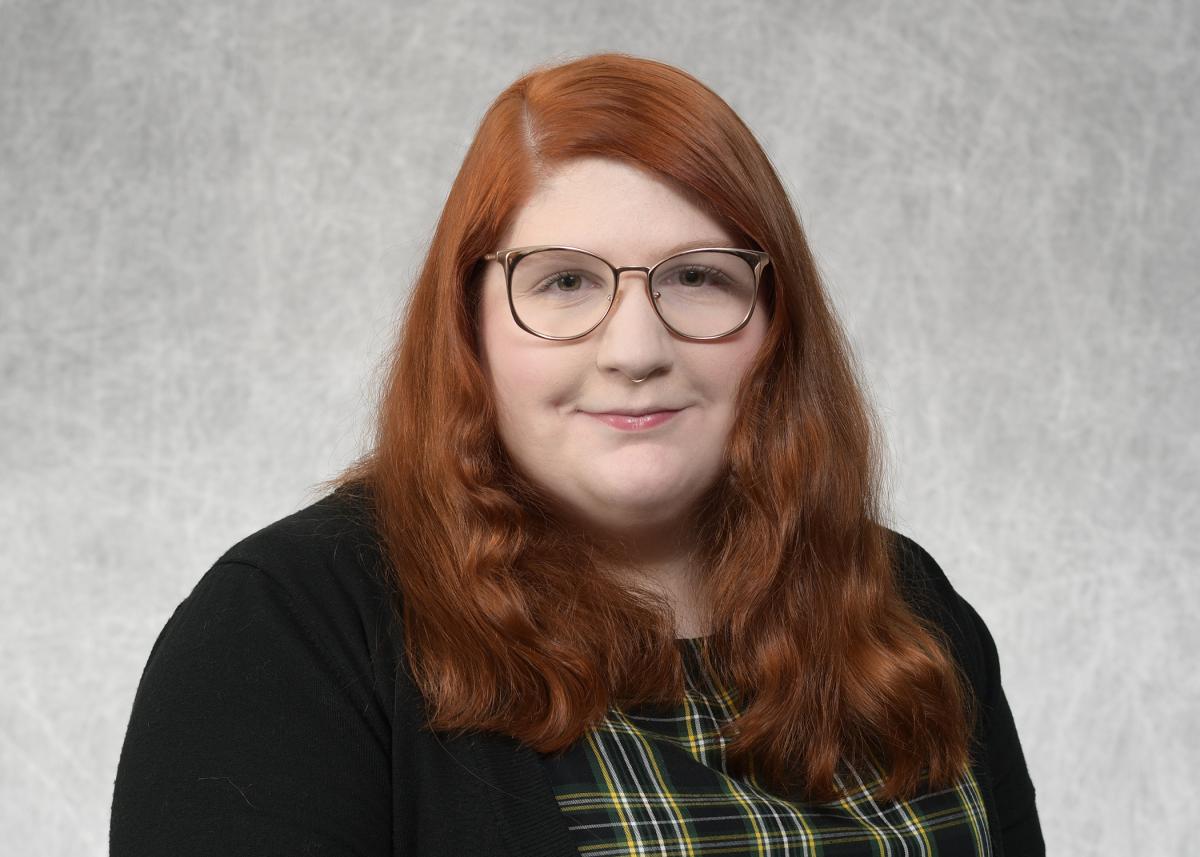 By Sarah Mason, Music Outreach Librarian at Talbott Music Library, Westminster Choir College of Rider University
By Sarah Mason, Music Outreach Librarian at Talbott Music Library, Westminster Choir College of Rider University
As a librarian in a specialized library, the challenges of outreach can be a bit different than in more traditional libraries at times. As Music Outreach Librarian at Talbott Music Library of Westminster Choir College of Rider University, I am constantly searching for new outreach opportunities, especially ones in which I can include music in some way.
This past February, with the help of my colleagues, our music library was able to put on what was perhaps our most successful outreach event of the year: a musical recital that featured staff and faculty members of the library. The Talbott department wanted to show our patrons that while we are librarians and library staff, we are also still musicians! Everyone currently employed in our music library has plenty of musical experience and at least one music degree, (though some have multiple!) and we cover a range of instrumentation and voice parts. So, we decided to find a way to show our musicality through a library-related event titled “Musicians, Too.”
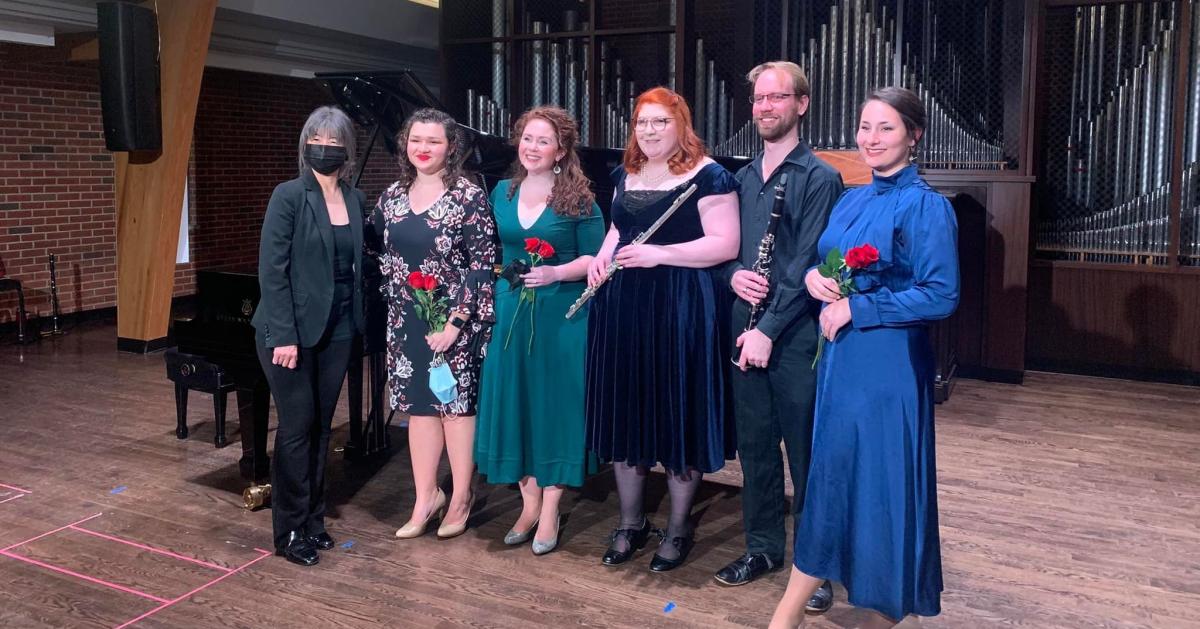
The planning for the recital started months in advance and included many logistical things that we had not expected to run into! The initial planning began during the fall semester of 2021, then we put our plans into motion beginning in January 2022. The first steps to planning the recital were to first decide where we intended to have the recital, to find a date that worked, then to get a general program planned out.
Initially, we had wanted to have the recital IN the library. Our thinking was that it would be a great way to bring people into the library space, and to show a strong connection between us being library workers, as well as musicians. However, the more we looked into it, the more potential problems seemed to crop up. We agreed that the acoustics of the library would not be especially conducive to performing, and we would need to advertise well in advance that there would be an event that would eliminate quiet study during the hour(s) in which we were performing. In addition, we would need to bring a piano into the library building. I reached out to various contacts on campus and discovered that it could be up to $500 per move (totaling $1000) just to get a piano brought in and taken out after the event. We decided it was not within our budget, and ultimately, this was the main deciding factor on moving the recital to another location.
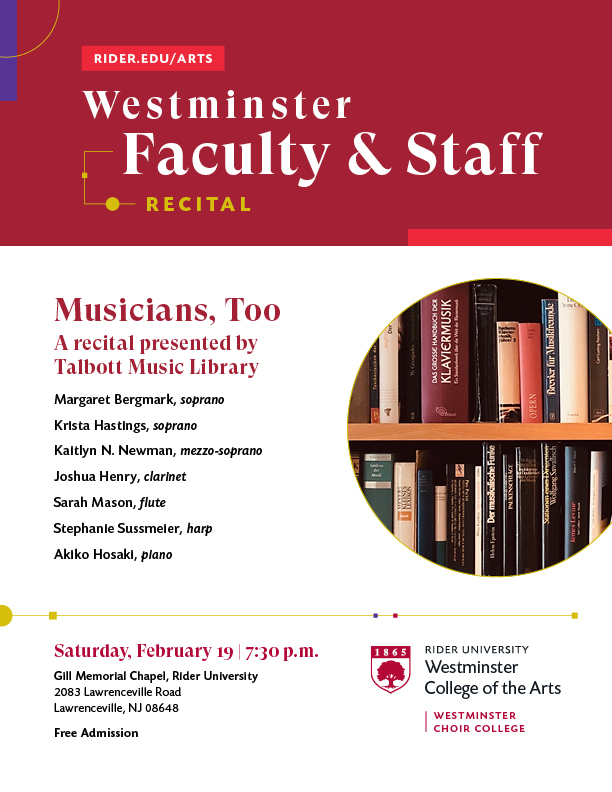 After deciding against performing in the library, we had to find a different venue to use. One of the main performance spaces on Rider University’s campus is the non-denominational Gill Memorial Chapel, so we looked into booking it for the recital. The venue already had a piano, so that thankfully eliminated any worries on that end. Even at the very beginning of the spring semester, though, the venue was already booked up. We had three tentative dates that would work best for each of us, and it appeared that all three had been booked already. Luckily, I was able to secure a time on a Saturday evening, thanks to the help of performance management.
After deciding against performing in the library, we had to find a different venue to use. One of the main performance spaces on Rider University’s campus is the non-denominational Gill Memorial Chapel, so we looked into booking it for the recital. The venue already had a piano, so that thankfully eliminated any worries on that end. Even at the very beginning of the spring semester, though, the venue was already booked up. We had three tentative dates that would work best for each of us, and it appeared that all three had been booked already. Luckily, I was able to secure a time on a Saturday evening, thanks to the help of performance management.
After securing our venue, our next steps were to solidify the musical pieces we planned on playing/singing, get all the information needed to get our programs printed (including performer biographies, lyrics and translations for the vocal pieces, etc.), and finally, advertise the event. While we did release a few teaser posts on our social media previous to our announcement, we did not actually make an official announcement until two weeks prior to the recital. We sent this announcement through as many channels as we could: faculty and student listservs, social media, and printed posters that were posted throughout the campus. We continued to make final edits on our program information right up until the week before the recital, but things fell into place, even on a tight time crunch.
The night of the recital, we were a bit unsure of what the turnout would be. We had advertised for two weeks prior to the event, and encouraged our student workers to tell their friends and classmates, but also knew that we might have a smaller audience due to the pandemic. Our concerns about having a small audience turned out to be incorrect, however: the house was mostly full when the recital started, and everything ended up going incredibly well, with nearly 40 people in attendance - a number that definitely beat our expectations!
Our recital, though some aspects were a bit hastily planned, went very smoothly overall and was a great success. We are hoping that we can make it a yearly event, due in part to the positive feedback we received on the event, as well as in how much we enjoyed making it happen! We would not have had the success that we did without the help of the university’s Performance Management, Creative Services, and many, many others who worked behind the scenes. We continue to get positive feedback even months later on the recital and how much it was enjoyed by those in attendance. Ultimately, I feel that we accomplished exactly what we had set out to do: show our library patrons that we are musicians, in addition to working in libraries, and further support that we are subject specialists with experience and knowledge in music.
Sarah Mason is the Music Outreach Librarian at Talbott Music Library at Westminster Choir College of Rider University. She can be reached at smason@rider.edu.
RVCC Library Classroom Facelift
By Alyssa Valenti
At the Evelyn S. Field Library at Raritan Valley Community College (RVCC), we take great pride in our robust information literacy instruction program. The teaching librarians at RVCC regularly utilize active learning strategies, high-impact educational practices, and seek opportunities to implement universal design for learning in our class sessions.
Unfortunately, our physical library classroom wasn’t really ideal for these practices. In fact, we often had to patch together ways of facilitating group work, pairs, and movement around the classroom due to the stationary and unwieldy furniture set up. RVCC regularly refreshes instructional spaces and classrooms over the summers to meet ‘classroom standards’ previously identified by a committee consisting of faculty including the Associate Professor of Interior Design and the Director of Campus Multimedia & Instructional Technology. The library classroom was finally included on the renovation rotation schedule and the librarians worked with Facilities and Technology Services to design a classroom that actually supported the way we teach.
The cosmetic
Cosmetic improvements included a fresh coat of calming, neutral paint in an off-white color that brightens the space without being harsh. Adding carpeting was a high priority as the classroom was acoustically less than ideal due to linoleum flooring and a large HVAC system above the space which reverberates around the room and stifles sound from both students and instructors. Replacing the ceiling tiles also helped tremendously with the HVAC noise. Updated LED lighting is now on motion detector switches which allows us to turn off the lights at the front of the classroom while leaving them on in the back so that the projector screen can clearly be seen by all.
The functional
Of utmost importance was new, modular furniture. To support the library’s active learning focus, we were able to get new tables on casters which also collapse to be stored against the wall when not in use. The functionality of the modular furniture allows us to set the classroom up in rows, pairs, small groups, large groups, or just as an event space with rows of seating. The chairs are also on casters and are lightweight and comfortable. As whiteboard space supports much of our active learning strategies, we really wanted ‘360’ whiteboards. Although we do not yet have new whiteboards on every wall, we have them on 2/3 of the space and they are fresh and new adding to the updated and renovated classroom space.
The technology
Before the renovation, teaching librarians were essentially anchored to the front of the classroom by an imposing instructor station with a desktop computer. Now there is an instructor station with a smaller footprint and lower desk area. Although it still has a desktop computer, the librarians are now able to use laptops to connect wirelessly to the projector and thus, can teach from around the room. The projector has an accompanying smart pen that turns our whiteboard into a smart board and the pen can also be used as a mouse when standing at the board. This renovation accounted for a repositioning of the projector to be centered along the front white board (previously it was left aligned) which makes things symmetrical and visible to all participants in the classroom. The final technology improvement was to switch from desktops to laptop computers for student use. We now have two charging carts on casters where students without their own devices are able to use a library laptop for instruction. The laptops are lightweight and new and students can switch groups as needed and bring the devices up to the whiteboards.
Conclusion
Teaching in our newly renovated space which finally matches much of the pedagogical strategies we use has been an opportunity to try new things and not have our surroundings be the barrier to their success (or failure). We hope that students will also find the space to be conducive to learning and will help them succeed in meeting the information literacy learning outcomes we’ve identified. Sometimes a little makeover is all that’s needed for inspiration!
Before and After Photos
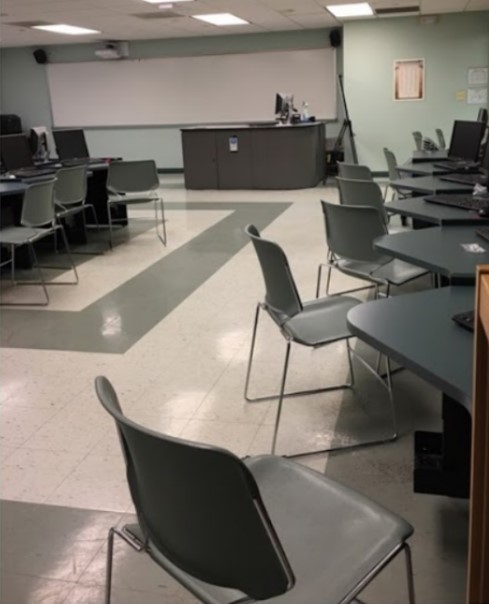
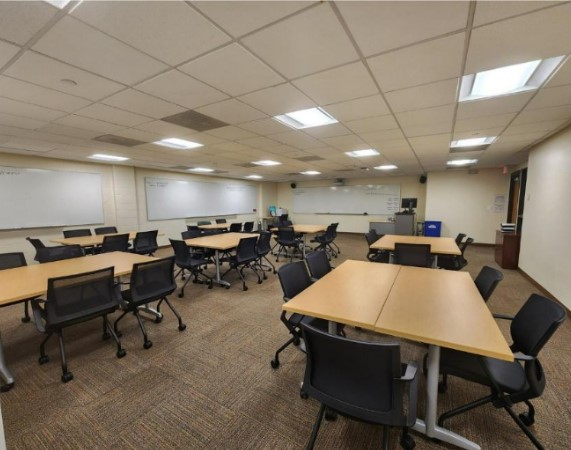
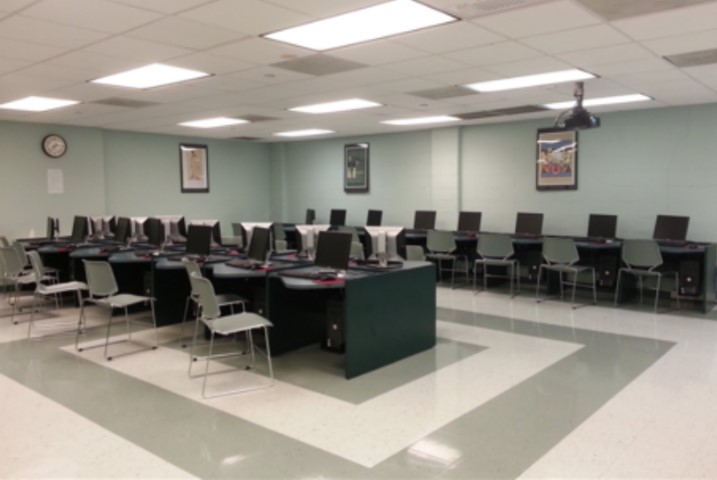
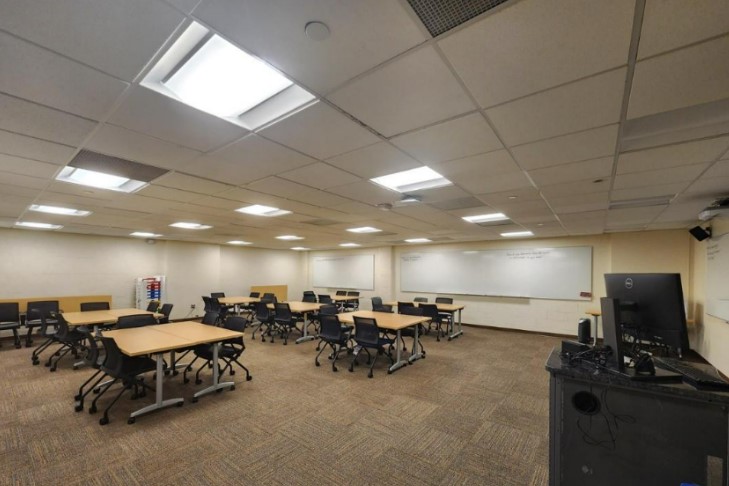
Alyssa Valenti is the Electronic Resources & Web Services Librarian & Library Chair at Raritan Valley Community College. She can be reached at alyssa.valenti@raritanval.edu.
Union College Library Asian Calligraphy Workshop
By Jane Jiang
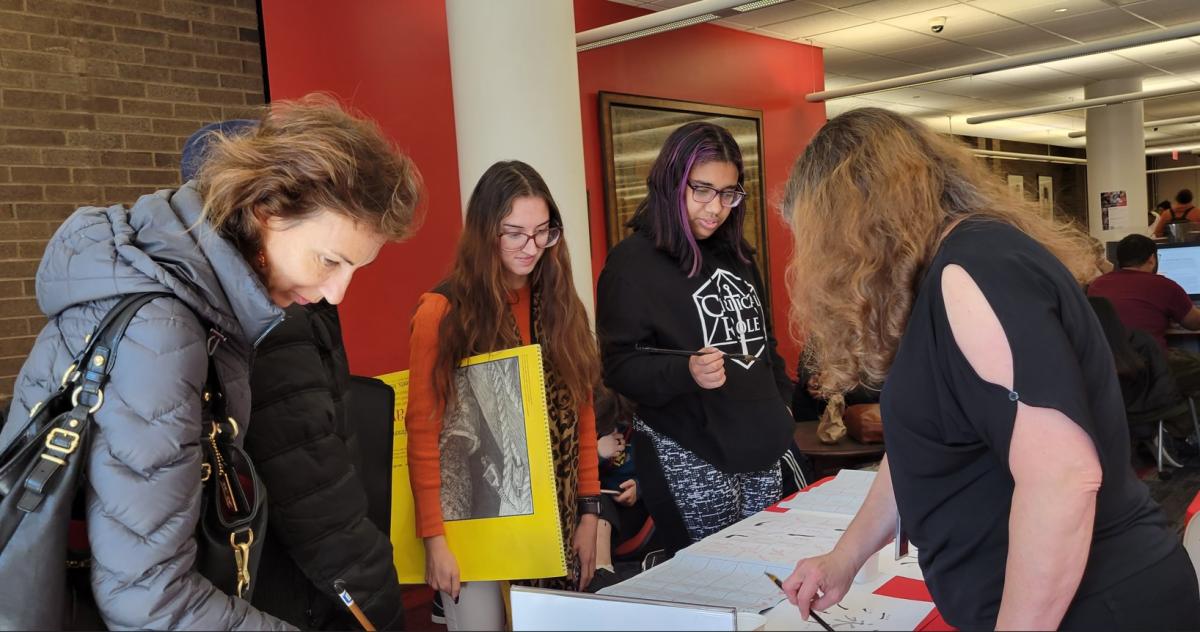 In order to serve the diverse community needs and learn from different cultures, Union College Library held an Asian Calligraphy Workshop on October 19, at its Cranford campus. This is the second time the library ran this program. For some attendees, it was their first time holding a brush and writing on that special thin paper. Jane Jiang, Director of the Library, did the demonstration herself and explained the meaning and origin for some of the characters. She also introduced the benefits of brush writing: You need to control your breath and retain your composure, which is similar to meditation. It can also improve your concentration and alleviate your stress. The library received very positive feedback for this event. Many patrons asked the library to do it again.
In order to serve the diverse community needs and learn from different cultures, Union College Library held an Asian Calligraphy Workshop on October 19, at its Cranford campus. This is the second time the library ran this program. For some attendees, it was their first time holding a brush and writing on that special thin paper. Jane Jiang, Director of the Library, did the demonstration herself and explained the meaning and origin for some of the characters. She also introduced the benefits of brush writing: You need to control your breath and retain your composure, which is similar to meditation. It can also improve your concentration and alleviate your stress. The library received very positive feedback for this event. Many patrons asked the library to do it again.
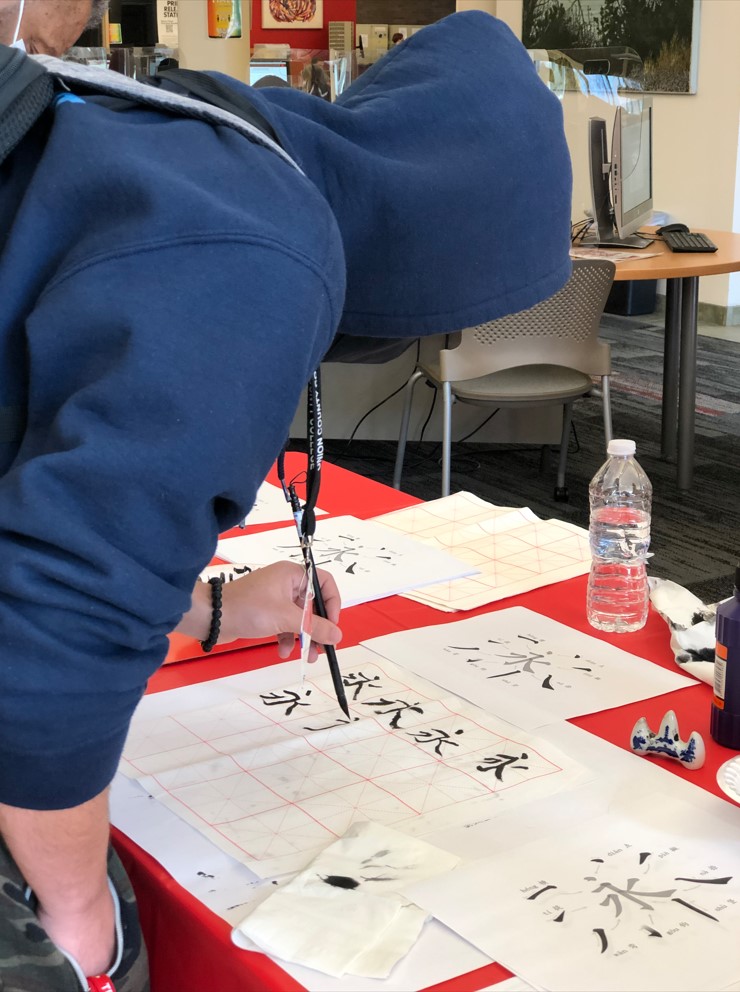
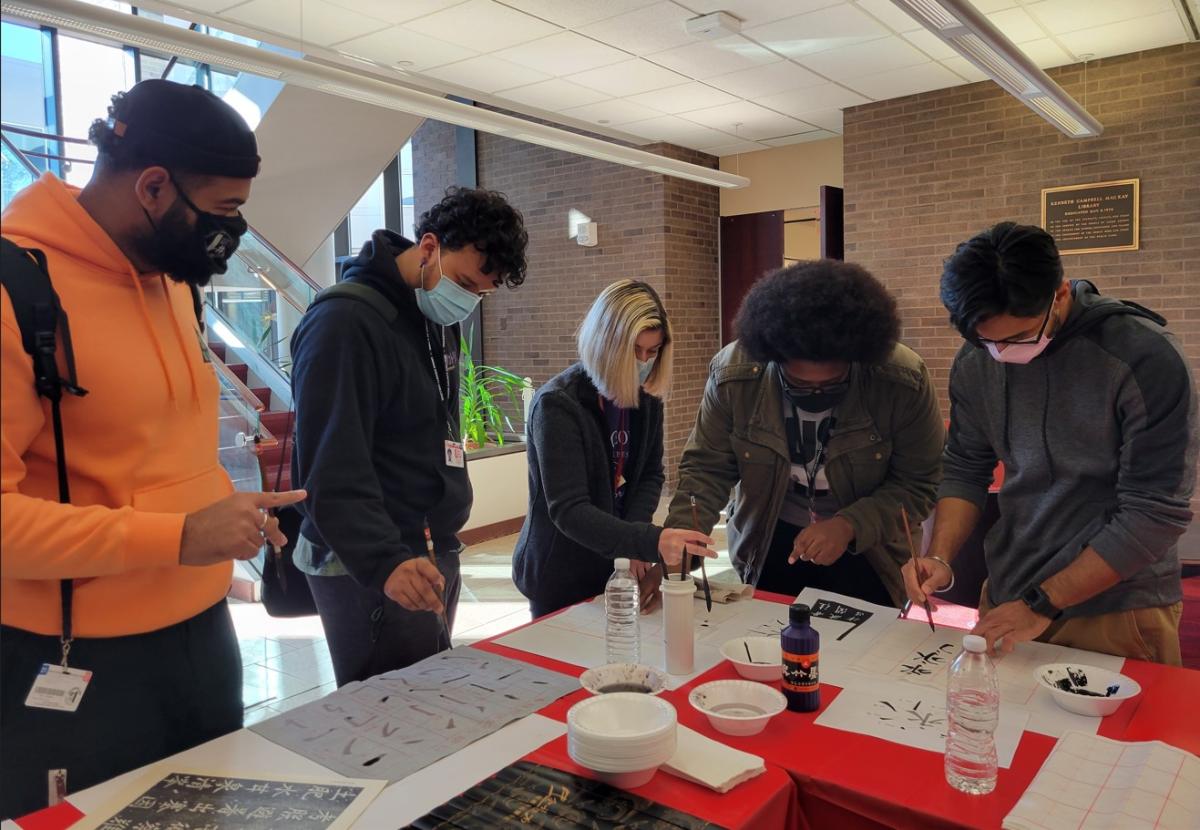
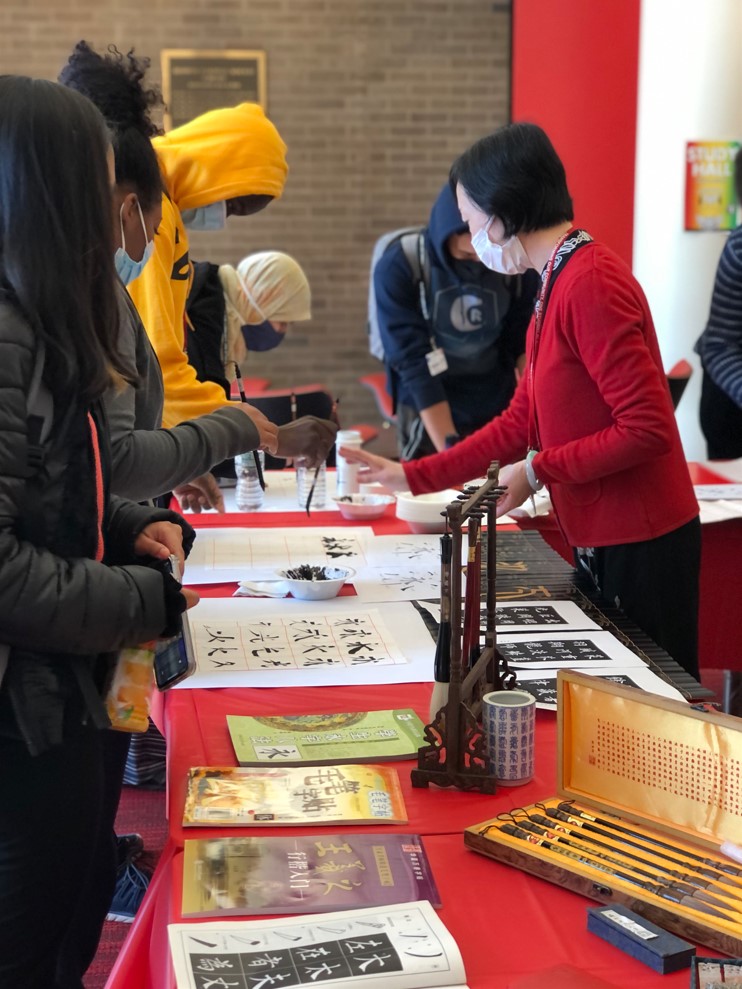
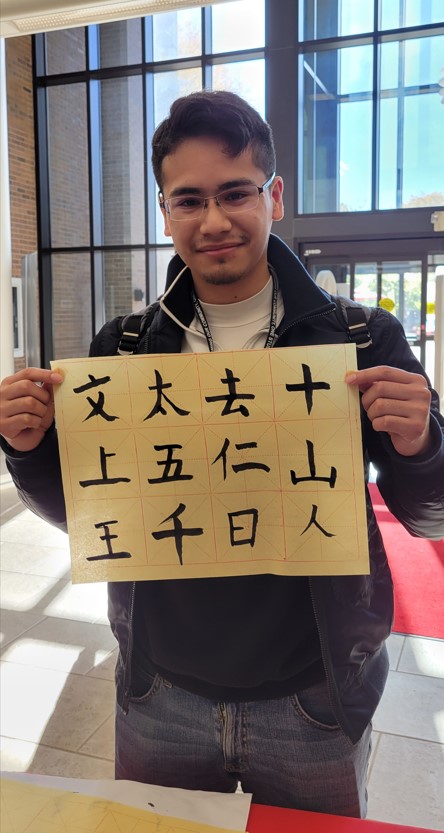
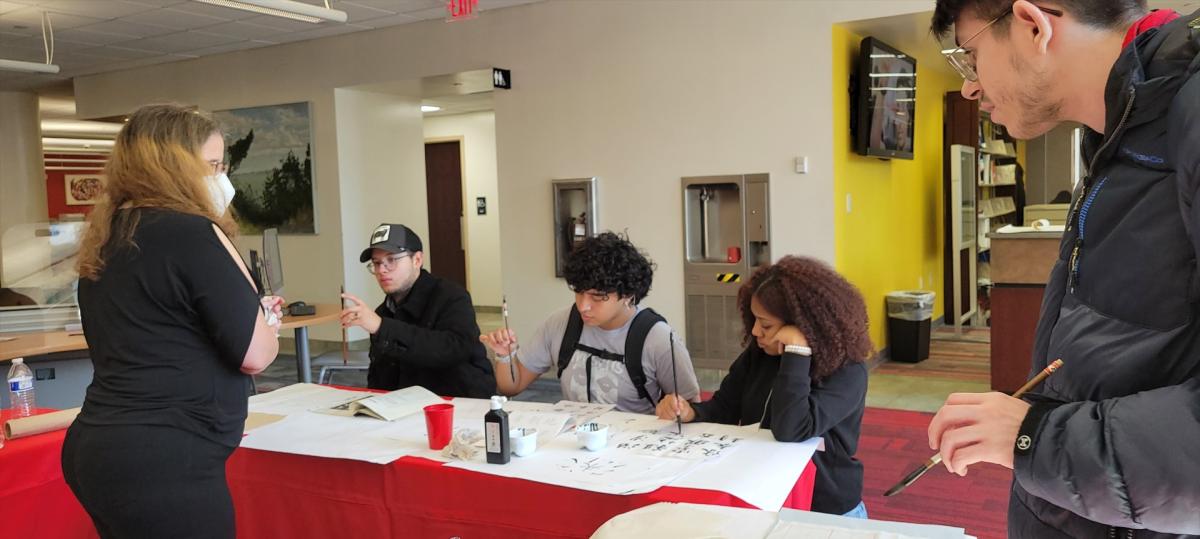
Jane Jiang is the Director of Libraries at Union County College, and can be reached at yu.jiang@ucc.edu.
Teamwork in Libraries: 1R and 3Cs
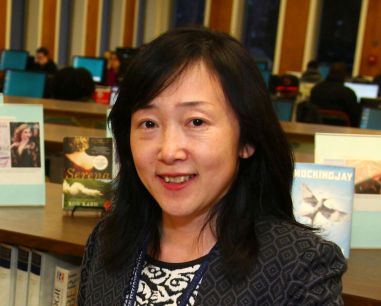 By Jane Jiang, Director of Libraries, Union County College
By Jane Jiang, Director of Libraries, Union County College
“It’s not my job!”
“Sorry, I think that’s the responsibility of X department!”
“No one told me that’s my duty before!”
Do these phrases sound familiar in your working environment? Sometimes when working on collaborative projects with coworkers, you may feel frustrated because all members of your team are not on the same page, and there seems to be no way to move forward at all!
Well, no surprise, there is a communication issue again. We all admit that the core to completing a group project is communication. However, we still fail. Why?
I don’t want to dig into philosophy here. Each one of us has our own way to view things, to live, and to work. This is encompassed by a popular acronym of today--DEI. It’s a beautiful part of society. We embrace diversity; however, we also need to realize one thing: in a library working environment, you cannot always work alone. You must work with others. Teamwork is critical not only to get things done, but also to cultivate healthy social relationships.
I read a research paper a long time ago, saying that over 70% of librarians are introverted people. It may be true, but it doesn’t mean you cannot communicate or work well with others. Communication is an art indeed. Some universities even offer courses for improving just that. It is not just about talking to each other. Discussion in a workplace is always the key. If there is a misunderstanding, just give that person a call or talk to them in person, don’t immediately resort to email. That can save you a lot of time.
There are few more points necessary for good teamwork. I call them 1R and 3Cs.
1R means Respect. It is above all the most important, and it includes three aspects.
First, respect your work. No matter how good or bad your work ethic is, you are paid to do your work well in a professional way.
Second, respect your supervisor. You may think she/he doesn’t understand what you are doing. So, explain it to them. If you cannot explain it well, that is on you. At the same time, you also need to listen to her/his decisions. Conflicts are normal in work, but you need to respect your supervisor’s vision and ideas. You don’t need to understand it all, but you need to execute it all and complete the assignment in a professional way.
Third, respect your co-workers. Susan worked in the library for 10 years, and Jessie just started last month. But this is never an excuse to ignore or despise each other. I believe you can always learn something from others with different experiences or cultures. Sometimes people don’t like each other in a work environment; that is absolutely fine. You can dislike each other, but you still need to work together and respect each other.
First C—Communication. I’ve already mentioned the importance of communication at the beginning of the article.
Second C— Cooperation. As a team, we need to know each other’s strengths and weaknesses, and use them wisely and efficiently. For example, since Susan has worked here for many years, she knows many faculty members and has connections with other departments. Jessie is new, but she is enthusiastic and is good at graphic design. When coordinating a poetry reading, Susan will use her resources to reach out to other departments to promote the event, while Jessie will make a very attractive flyer and post it on college media channels. This teamwork facilitates the event and draws many students and professors to join.
Third C—Collaboration.
The library is a hub for the entire college community. It provides varied services to support all academic needs, and connect to all as well. Sometimes we need to work with other departments. That requires collaboration. To do that efficiently, we need to understand other departments’ features and functions, including their interests, availability, willingness to collaborate, how much they can get involved for some events or programs, and so on.
For example, recently our Library wanted to make a virtual tour video for library patrons. This required help from the college's social media department. The library staff had to reach out to the social media department director, explain the plan in detail, and ask for suggestions and about its feasibility. After coming to an agreement, the staff drafted the script before shooting a 5-minute video. The staff scheduled appointments with the social media team to discuss the details. We understand their busy schedule and try to reduce their workload as much as possible. After a few discussions and revisions, this project will be smooth and successful.
In our college, the library shares space with the Academic Learning Center (ALC). There are a lot of collaborations required for the two departments to work together, understand each other’s needs, and their similarities and differences in services.
In conclusion, teamwork is not only a concept, but also the reality we face every day in our work. Keeping 1R and 3Cs in your mind will accelerate your work efficiency and help to maintain a healthy mindset as well.
Jane Jiang is the Director of Libraries at Union County College, and can be reached at yu.jiang@ucc.edu.
Union County College, MacKay Library Hosts National Poetry Month Event
By Karen Venturella
On Wednesday April 20, Union County College MacKay Library hosted a poetry event in honor of National Poetry Month April 2022.
In April 1996, the Academy of American Poets created National Poetry Month. The goal, as stated on the poets.org website is to “remind the public that poets have an integral role to play in our culture and that poetry matters.” (From https://poets.org/national-poetry-month)
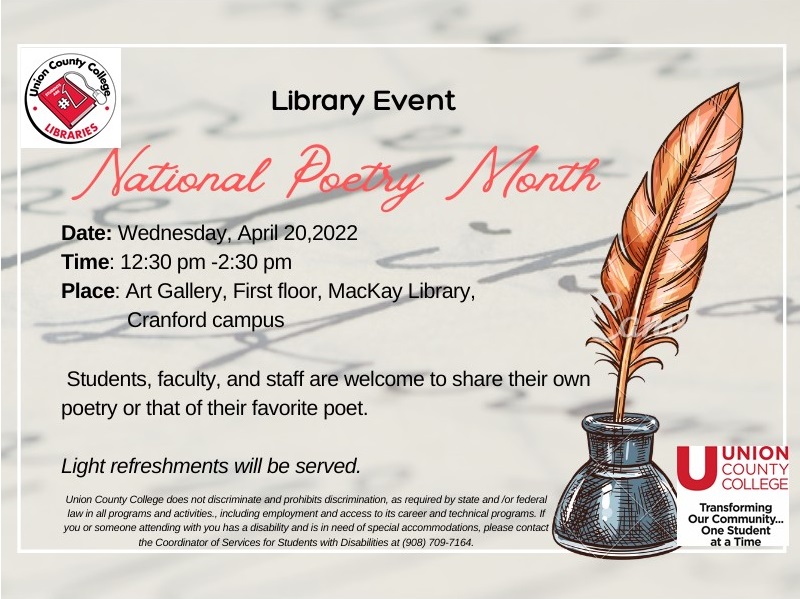
The Union County College Library celebrated National Poetry month with a book display of poetry titles and a poetry reading event on Wednesday April 20 in the Cranford Art Gallery.
Working together with the English faculty, the library had English professors and students read their own poetry and the poetry of others. The event was well attended by students as a few English professors asked their students to attend and to participate. The Library Director also read (in Chinese and English) a poem that she wrote.
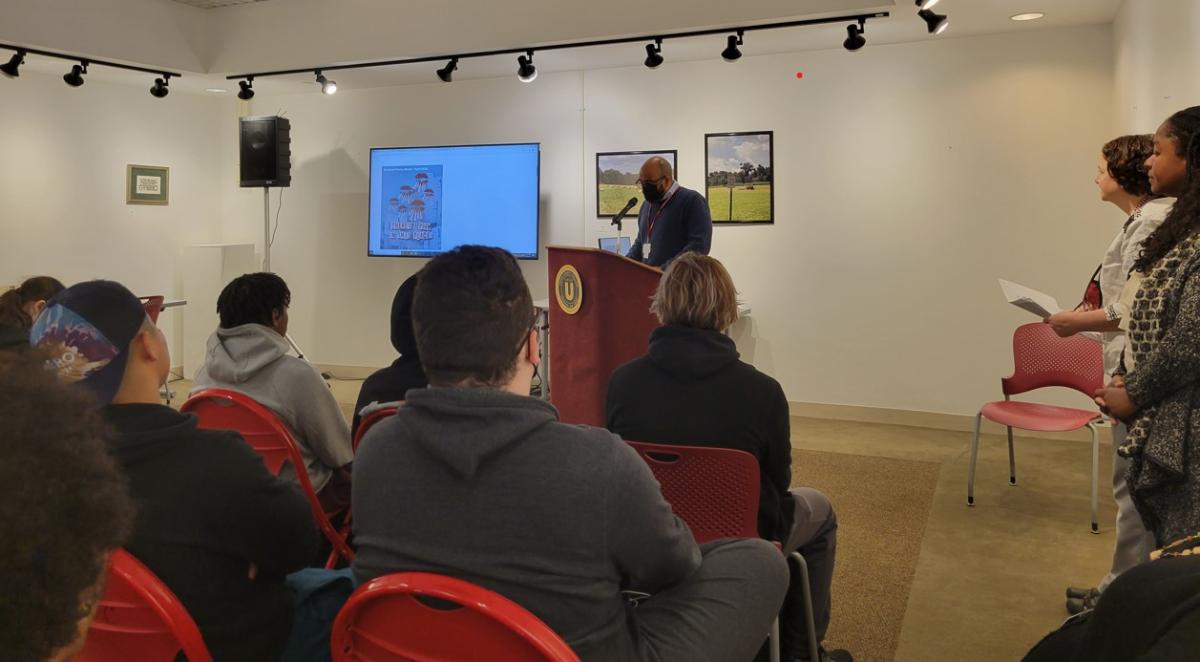
The program began with Professor Roberto Garcia reading two of his poems: “No currency” and “Elegy for Tito”. Professor Roberto C Garcia, Assistant Professor of English at Union County College, is the author of three poetry collections: Melancolía (Cervena Barva 2016), black / Maybe: An Afro Lyric (Willow Books 2018), [Elegies] (2020 Flowersong Press). He writes extensively about the AfroLatinx and AfroDiasporic experience.
A variety of poetry was selected – classic and modern, offering many perspectives, and representing a diversity of cultures. We interspersed the live readings with videos of poets reading their works using the Films on Demand library database. The goal was to celebrate the power of the written word and National Poetry month.
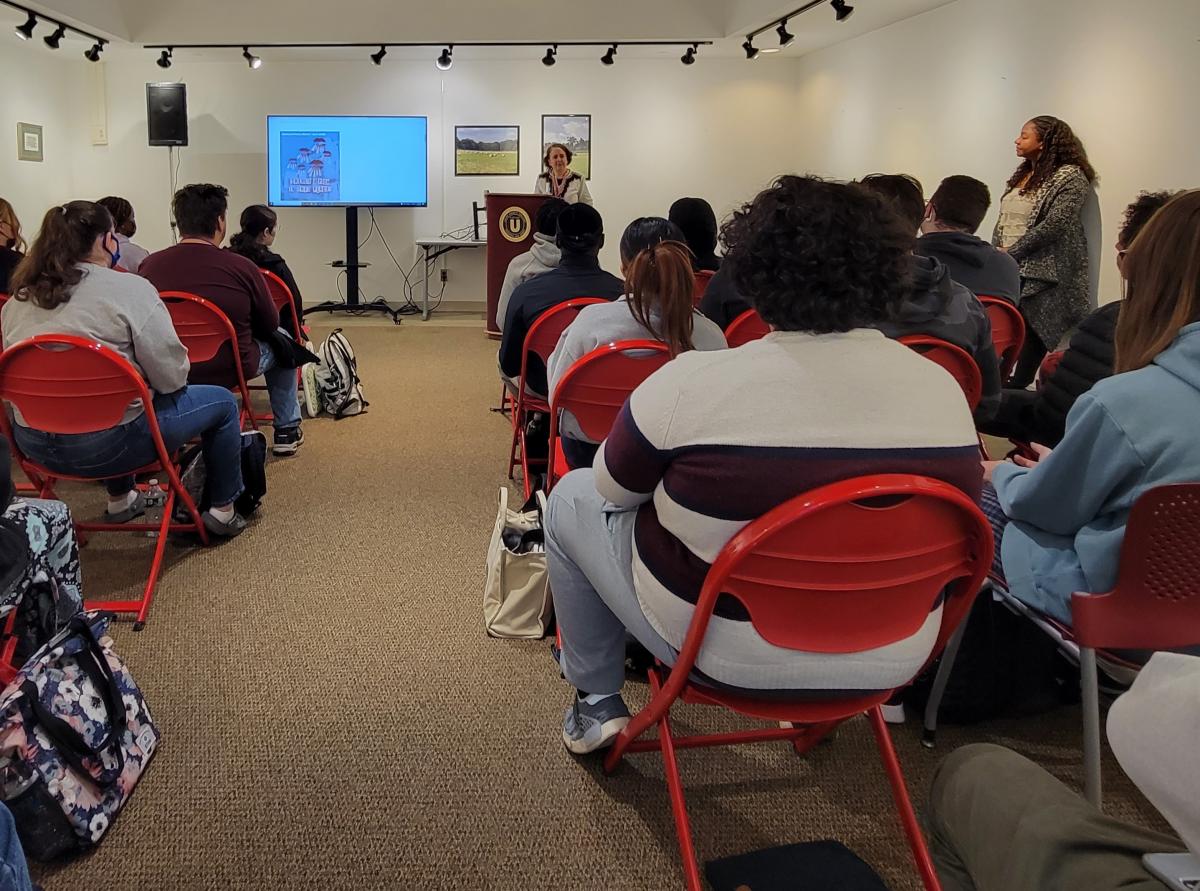
Karen Venturella is an Associate Librarian at Union County College. She can be reached at Malnati@ucc.edu.
George T. Potter Library Celebrates the Inauguration of Ramapo College President
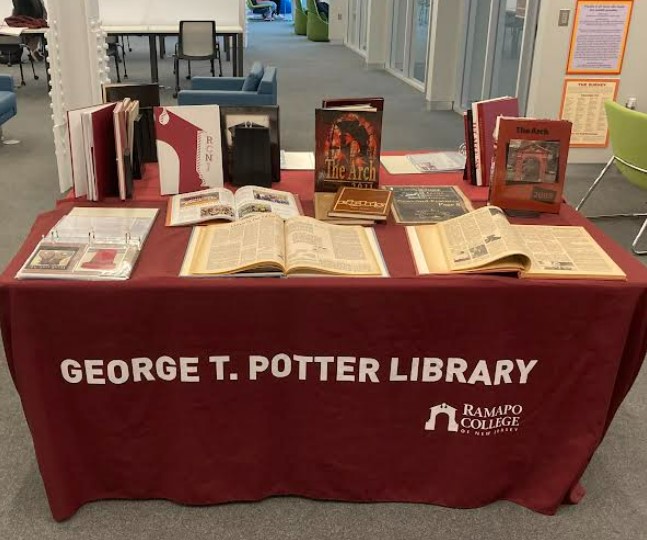
On October 14, 2022, Ramapo College celebrated the inauguration of its fifth college president, Dr. Cindy Jebb. George T. Potter Library honored the event with a display of yearbooks, newspapers and other items of interest from the College Archives.
Theory into Practice
By Susan Van Alstyne, EdD
Defending my dissertation in March 2020 had its own set of challenges during the early days of the Covid-19 lockdown. My dissertation "Library Evolution, Digital Revolution" is a grounded theory study focused on the role of academic libraries in higher education institutions with 10,000 or fewer FTE. Most of the respondents were library leaders from small residential liberal arts institutions. At the time, the institutions offered limited, or no online course options, which is of note as the library's physical space was a central topic of discussion. The recurring or overarching theme is how each library leader was negotiating and transitioning between the passive and the active use of library services, collections, technology, and physical space. The way users are consuming and or creating information is contributing to how each library leader is learning to negotiate the physical and the virtual, along with other common themes such as the importance of archives to preserve institutional memory, collections as service, and space as service. Another common theme is the understanding of user experience and knowledge transfer rather than sole concentration on physical items.
The research participants agreed that it is key to be proactive to market collections while simultaneously foreseeing trends of how diminishing formats such as the CD/DVD will impact services.
Ideally, I would have loved to conduct follow-up interviews and share my findings with the participants—but it was not to be with the flux and the state of the universe. The physical space of the library was a central topic of discussion. Although many of the institutions did not offer online courses (pre-pandemic), the libraries offered online support via electronic resources and online research guides.
I joined the Taylor Memorial Library (TML) at Centenary University (CU) in March of 2022. I was drawn to the library simply by its mission statement to "cultivate curiosity and creativity." The mission resonated with me deeply—it is my belief that libraries create transformative experiences through the services, programs, and collections that inform, educate, and inspire.
I am honored to join the CU community as I navigate a new environment though I must stress the importance of having a talented and supportive team. There were two open positions when I joined, which have since been filled, and our team is now complete. There is something invigorating about new challenges and the unknown—and now time was the time to put Theory into Practice!
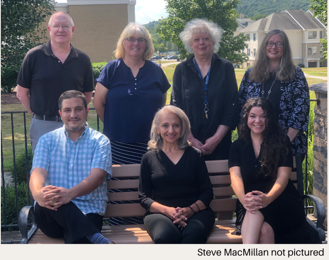
While we are in a constant state of balancing faculty instruction requests, student questions, maintenance requests, hiring and training work-study students, reports, projects, and our basic workaday—we manage to make time for professional development, too! This reality raises another question: how to continue to create high-impact services with limited resources.
Some of the emerging themes from my research warranted new exploration and connections to business models and innovation theories. Libraries must consider forward-looking service models that include and adapt to changing user behaviors.
In March 2022, there were several dynamics at work, including new students coming out of the pandemic quarantine unfamiliar with academic library services. Also new for me and the staff was how do we create and reimagine the programs and services to pique the interests of our community?
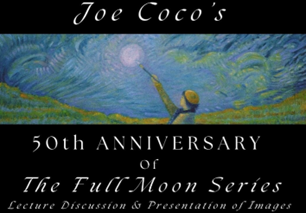
Creating great experiences became a priority! The first thing I noticed was we needed artwork. I am intrigued by how museums transformed their services during the pandemic. One of the first professors I met at CU was artist Professor Joe Coco. A brief conversation with him turned into having his artwork exhibited at the library—the reaction was wonderful, especially with visitors having to get used to public spaces again. It is so important to share and display art. We also transformed a media room that housed DVDs into a wellness room. The students and staff have provided positive feedback about the transformation.
External viewpoints and building partnerships are always important. Thanks to Library Journal, our library was selected as a case study for the June 2022 Library Journal Design Institute held at the Stavros Niarchos Foundation Library (SNFL). Our architect, Jim Kovach of VMDO Architects, provided an excellent plan, and the participants in our charrette shared their insights on renovating our library. We have also established new partnerships with local organizations such as Abilities of NW Jersey, Inc. for job shadowing arrangements for those seeking a career in libraries.
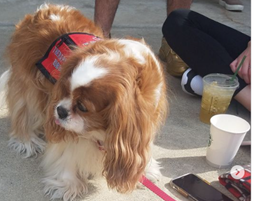 We also formed a new partnership with Bright and Beautiful Therapy Dogs to provide a stress therapy event. A volunteer from Bright and Beautiful had authored a children's book: Buster and the Brain Bully. We also have a story time every Friday morning where our education faculty and students run a children's story time.
We also formed a new partnership with Bright and Beautiful Therapy Dogs to provide a stress therapy event. A volunteer from Bright and Beautiful had authored a children's book: Buster and the Brain Bully. We also have a story time every Friday morning where our education faculty and students run a children's story time.
In September, the library had the pleasure of hosting local author Maryann McFadden who has written four popular books, including The Cemetery Keeper's Wife.
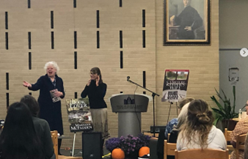
Putting many theories into practice has made this an exciting return to civilization!
On behalf of the TML team, I welcome you to visit us! Please sign up today to receive the latest news on TML. Our library is also open to the public
Sign Up Today! - Resource Memo - LibGuides at Centenary University
And our Event Calendar
Susan Van Alstyne, EdD, is the Library Director at Centenary University. She can be reached at susan.vanalstyne@centenaryuniversity.edu.
Rutgers University Libraries Announce Launch of Library Mobile App

Rutgers University Libraries is pleased to announce the launch of Library Mobile, an innovative app designed to enhance the Rutgers community’s library experience. The new app delivers seamless integration with the Libraries’ vast resources and services, providing an intuitive interface with personalized content.
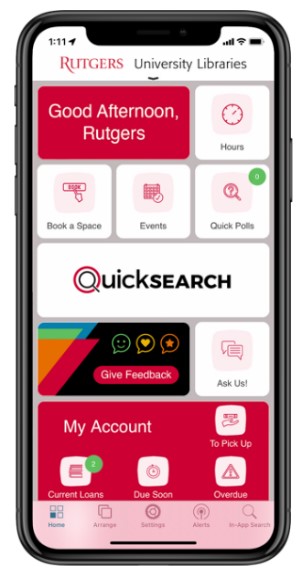
Library Mobile can be downloaded at libraries.rutgers.edu/app and is available for iOS and Android. After logging in with their Rutgers NetID, users can quickly access hours, study space reservations, course reading lists, and research assistance. The feature-rich app also allows users to conveniently search for content, manage their accounts, and stay up to date with library events.
Rutgers is proud to be the first North American institution to release the Library Mobile app, developed in partnership with Ex Libris, a leading global provider of cloud-based solutions for higher education and research. Feedback submitted through the app helps the Libraries to improve not only the app but also the resources and services it provides.
Rutgers University Libraries Announcements
|
Articles: Matthew Bridgeman, Information and Education Librarian at Robert Wood Johnson Library of the Health Sciences, contributed to an article in F&S Reports (Fertility and Sterility): “Fertility preservation in transgender men and the need for uniform comprehensive counseling,” F&S Reports (Fertility and Sterility), volume 3, issue 3, September 2022, pages 253–263. > Link to article Samantha Kannegiser, Student Success Librarian at Robeson Library, and Zara Wilkinson, Reference and Instruction Librarian at Robeson Library, contributed to an article in College & Research Libraries News: “Small Actions, Big Impact: Centering Student Voices and Advocacy with a Library Student Advisory Board,” College & Research Libraries News, 83, no. 3 (2022): 105–109. > Link to article Zara Wilkinson, Reference and Instruction Librarian at Robeson Library, published an article in In Fostering Student Success: Academic, Social, and Financial Initiatives: “Throwing the University Wide Open: Textbook Affordability and COVID-19,” In Fostering Student Success: Academic, Social, and Financial Initiatives, edited by Sigrid Kelsey, 135–148, Chicago: American Library Association, 2022. Leslin H. Charles, Instructional Design Librarian at Carr Library, contributed to an article in College & Research Libraries News: “What’s in a Frame? Perspectives of high school librarians and first-year college students,” College & Research Libraries News, vol. 83, no. 9 (2022). > Link to article Laura Palumbo, Chemistry and Physics Librarian/Science Data Specialist at the Library of Science and Medicine, contributed to an article in Library Leadership and Management: “A view from the top: Library leaders’ predictions for the future of science liaison librarianship.” Library Leadership and Management. 36(1). > Link to article Stephen Modica, Information and Education Librarian at Smith Library, contributed to an article in the Journal of Aquatic Physical Therapy: “Exercise in the Aquatic Environment for People With Primary Hip Osteoarthritis: A Systematic Review and Meta-analyses.” Journal of Aquatic Physical Therapy, 30(2), 44–57. > Link to article Books: Mary Beth Weber, Head of Central Technical Services, and Melissa De Fino, Special Collections and Formats Technical Services Librarian, were interviewed by Lauren Hays, a guest blogger for the Lucidea “Think Clearly” blog, about their recently published book, Virtual Technical Services: A Handbook (Rowman & Littlefield, 2022). Read the interview here. Presentations: Rose Barbalace, Library Supervisor II at Alexander Library, Megan Lotts, Art Librarian at the Art Library, and Tara Maharjan, Processing Archivist for Special Collections and University Archives, presented “Bringing the Work Students Home: The Rutgers University Libraries Student Worker Program Goes Virtual” to the Scholarly and Professional Actives Committee (SAPAC) on June 13, 2022. |
Comings & Goings (Chronological): Lauren Levinson joined the Interlibrary Loan department as Library Associate I on October 17, 2022. Charles Casseus joined New Brunswick Libraries as Lead Library Utility Worker, effective October 10, 2022. Laura Costello was appointed Director of Strategic Planning and Assessment for Rutgers University Libraries, effective October 10, 2022. James (Jamey) Silverstein was promoted to Library Associate II for the Annex and Carr Library, effective October 10, 2022. Corinne Suarez was promoted to Library Associate II, joining the Access Services Team at Douglass Library, effective October 10, 2022. Bonnie Fong resigned as Physical Sciences Librarian, effective October 8, 2022, to become Head of Research and Reference Services at Montclair State University. Jodi Costeira was promoted to Business Assistant, effective October 1, 2022, and relocated to the Technical Services Building. Julia Maxwell joined Rutgers University Libraries as Social Sciences Librarian on August 15, 2022. John Brennan was promoted to Senior Executive Assistant to the Vice President for University Libraries and University Librarian, effective August 6, 2022. Nita Mukherjee retired as Branch Coordinator for the Stephen and Lucy Chang Science Library, effective August 1, 2022. Consuella Askew was appointed Vice President for University Libraries and University Librarian, effective July 18, 2022. Thomas Denk joined Robert Wood Johnson Library as Library Technician on July 13, 2022. Maggie Harris-Clark retired as Head of Access Services at Dana Library, effective July 1, 2022. Roberta “Bobbie” Tipton retired as Business Librarian at Dana Library, effective July 1, 2022. Dennis Mark joined Rutgers University Libraries as Director of Communications on June 1, 2022. Karen Rock-Agard joined Dana Library as Library Associate II, Access Services, on May 16, 2022. Bret McCandless joined New Brunswick Libraries as Music and Performing Arts Librarian on May 2, 2022. Lisa Ryder joined Rutgers University Libraries as Senior Web Content Specialist on March 14, 2022. Sean Lorre joined the Institute of Jazz Studies at Dana Library as Managing Editor of the Journal of Jazz Studies on March 7, 2022. |
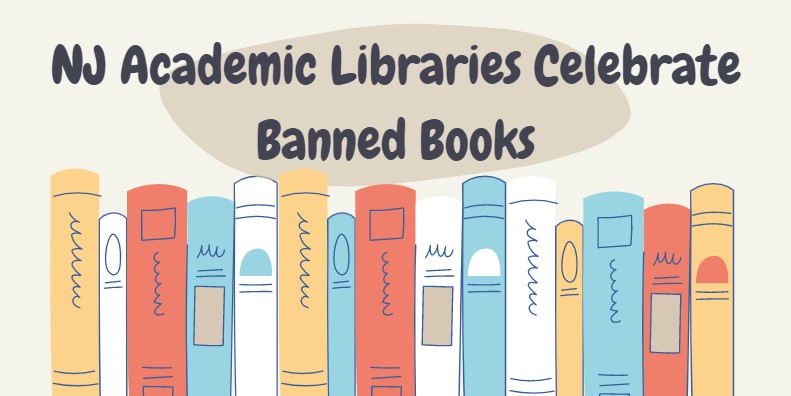
Academic Freedom in an Age of Censors: Local AFT President and Librarian Partner in Banned Books Lecture Series
By Christina Connor, Assessment and Instruction Librarian, Ramapo College and Edward Shannon, Professor of Literature, Ramapo College
Ramapo College literature professor, Dr. Edward Shannon, and I have collaborated on activities inspired by banned books, censorship, and academic freedom for many years. Past initiatives have included creating displays with various themes (mostly connected to literary works challenged or banned) as well as running roundtable talks and read-a-thons on challenged literature during September’s Banned Books Week.
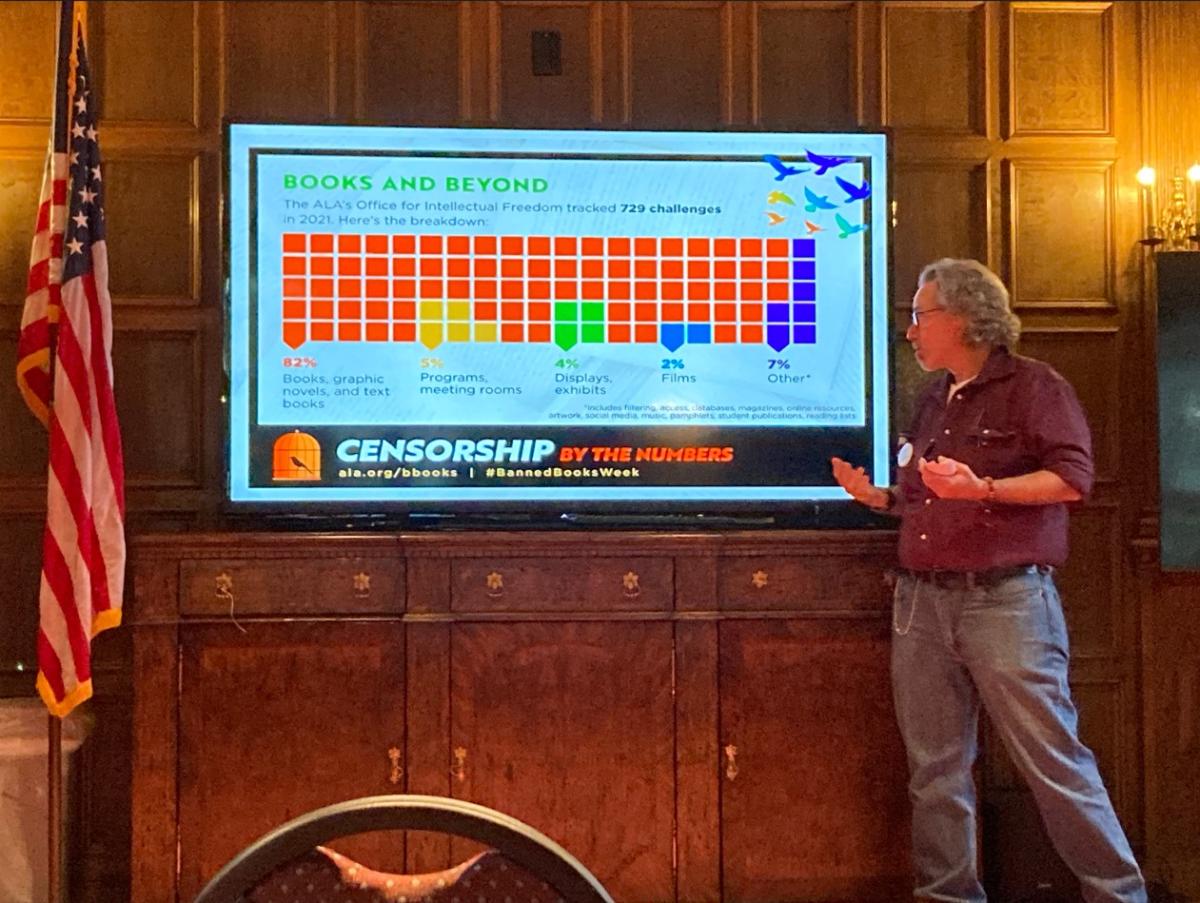 For this year, Ed was inspired to change the approach, in large part to his recent election as Ramapo’s as president of Ramapo College’s AFT (American Federation of Teachers) Local 2274, and attending the summer 2022 Labor Notes meeting in Chicago inspired a new shared project. Labor Notes is a coalition of labor activists, labor unions, and labor union representatives who work together for a variety of purposes, and tend to be fairly politically engaged, progressive. And, as Ed remarked, “aggressive.” Various unions are represented there: performers unions, labor unions, teacher unions, even the Teamsters. This broad swath of perspectives on the role of labor unions shed new light on what unions can be.
For this year, Ed was inspired to change the approach, in large part to his recent election as Ramapo’s as president of Ramapo College’s AFT (American Federation of Teachers) Local 2274, and attending the summer 2022 Labor Notes meeting in Chicago inspired a new shared project. Labor Notes is a coalition of labor activists, labor unions, and labor union representatives who work together for a variety of purposes, and tend to be fairly politically engaged, progressive. And, as Ed remarked, “aggressive.” Various unions are represented there: performers unions, labor unions, teacher unions, even the Teamsters. This broad swath of perspectives on the role of labor unions shed new light on what unions can be.
One workshop run by the AFT concerned classroom censorship. However, the session wasn't really about books; rather, it was about how individuals were being censored. One presenter - a Florida elementary school teacher and vocal gay rights advocate - faced a real challenge. He had been appearing on news programs opposing passage the of the “so called” Don't Say Gay law. Once the law had been passed, he was told by his principal, "Listen, the governor of Florida might be actually trying to get you fired," and I cannot help you. However, his union did, and he kept his job as well as his dignity.
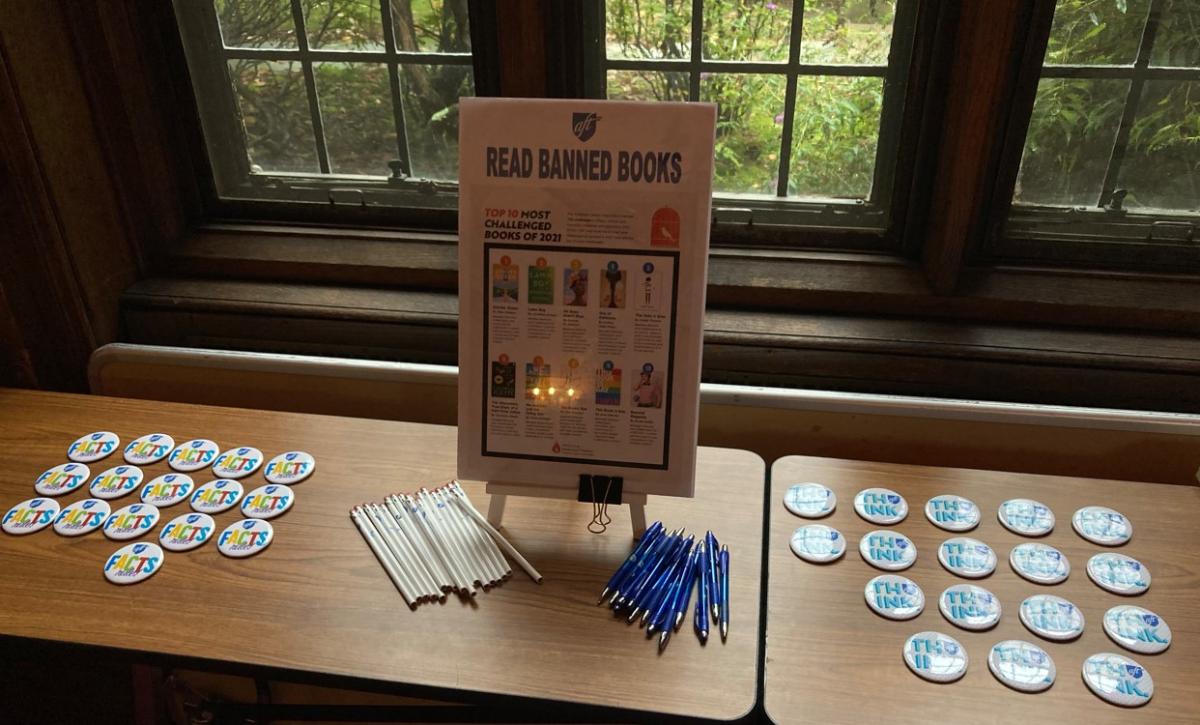 Teacher unions like the AFT can actively engage with these assaults on academic and human freedom. The AFT 2274 Constitution and our state contract both offer many specific references to academic freedom. So, in August 2022, the AFT Local partnered with Ramapo faculty members to schedule talks on academic freedom. Each presentation would include a short introduction by the AFT president focusing on how AFT advocates for academic freedom, followed by a longer discussion by a faculty member researching these topics. After the discussion, the Local would provide refreshments for a short Q and A session about the presentation.
Teacher unions like the AFT can actively engage with these assaults on academic and human freedom. The AFT 2274 Constitution and our state contract both offer many specific references to academic freedom. So, in August 2022, the AFT Local partnered with Ramapo faculty members to schedule talks on academic freedom. Each presentation would include a short introduction by the AFT president focusing on how AFT advocates for academic freedom, followed by a longer discussion by a faculty member researching these topics. After the discussion, the Local would provide refreshments for a short Q and A session about the presentation.
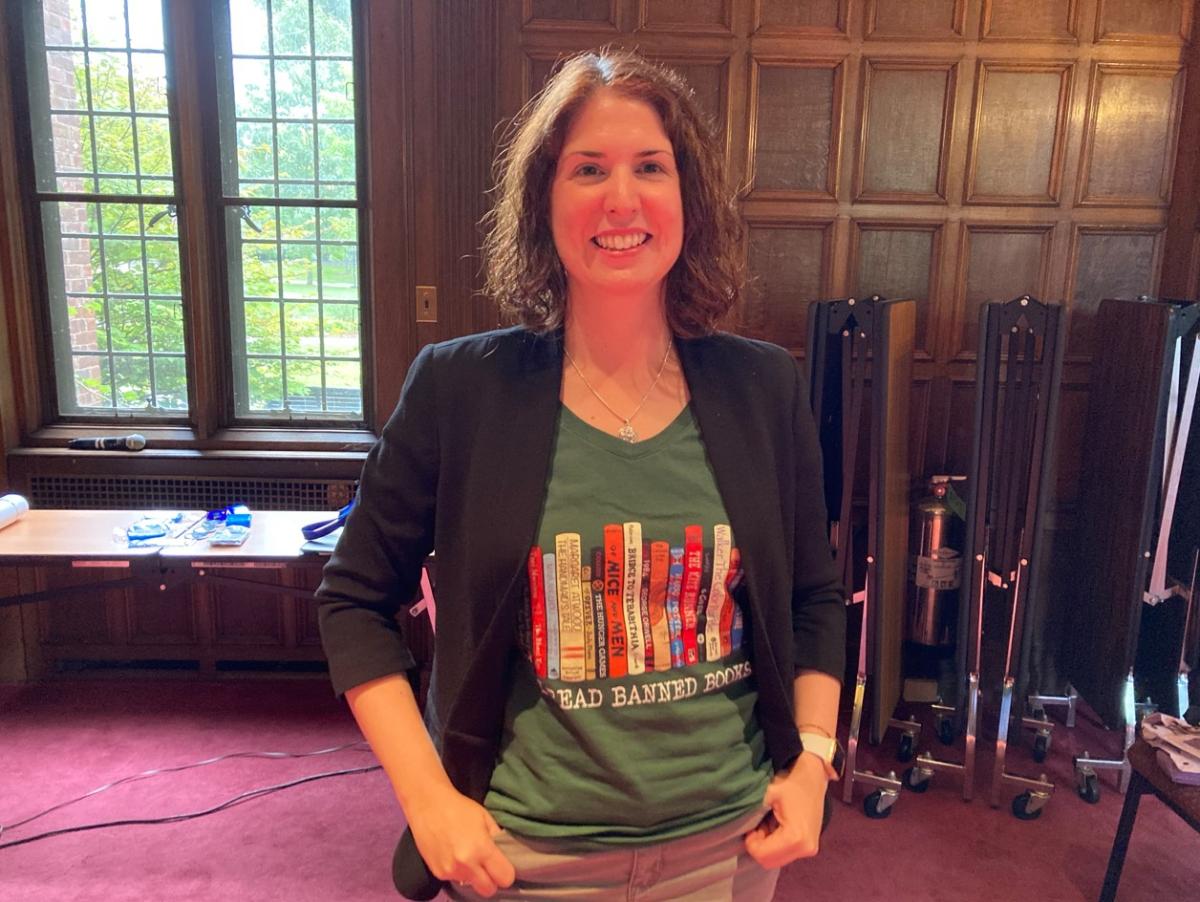 The first presentation was by me, Christina Connor, Ramapo College librarian and book historian instrumental in curating and teaching about the college’s American History Textbook Project (AHTP), a special collection which traces the history of American history textbooks and the evolution of educational materials in the country. The series kicked off during Banned Books Week on September 22, 2022 with a talk entitled “Not Suitable for Schools: A Textbook Example of Censorship.”
The first presentation was by me, Christina Connor, Ramapo College librarian and book historian instrumental in curating and teaching about the college’s American History Textbook Project (AHTP), a special collection which traces the history of American history textbooks and the evolution of educational materials in the country. The series kicked off during Banned Books Week on September 22, 2022 with a talk entitled “Not Suitable for Schools: A Textbook Example of Censorship.”
At Ramapo, students who use AHTP study a topic by exploring the text and accompanying textbook information in order to discuss changes, omissions, and evolving perspectives in the American historical narrative. The collection, which continues to grow, currently spans from 1826 to 2015, with a major focus on high school level materials.
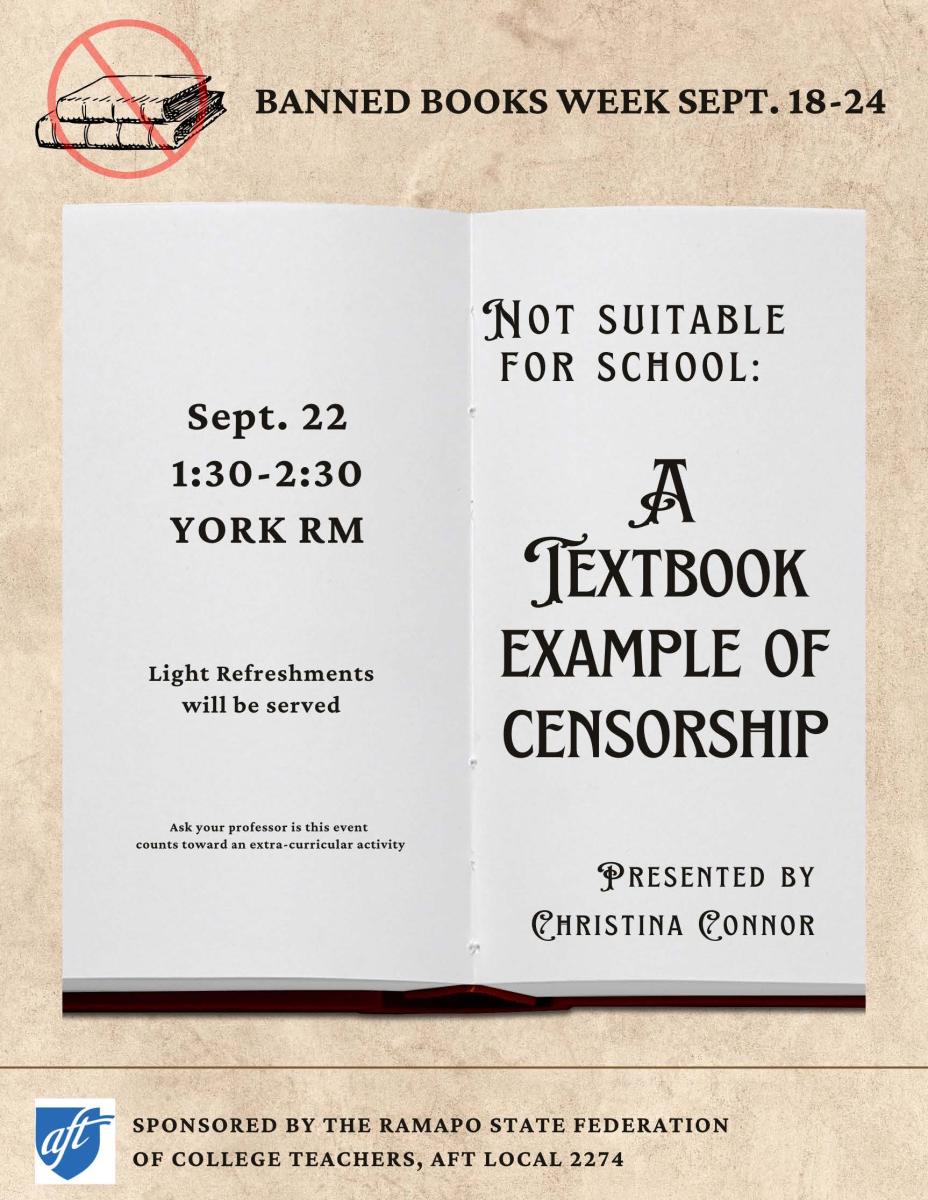 For this talk, I pulled materials that were considered controversial or “too progressive” for the time. I emphasized to students that this debate over how American history should be taught may seem like a current issue, but in fact, has a long history in the country. I explained to attendees that we’re all familiar with the Scopes Trial and controversy of teaching evolution in the classroom, but debates surrounding a perceived “progressive,” or what critics called a socialist approach to teaching American history, predate the trial. I drew on examples from over a hundred years ago and showcased news coverage of parents as well as various interest groups protesting specific books and authors used in the classroom, and presented a continued timeline of this issue. Books were challenged or censored if texts were deemed too critical of American history, and therefore considered “unpatriotic.” I also shared criticism from former confederate soldiers who were concerned with the perceived Northern bias with which textbook authors discussed the Civil War. The most rewarding part of the talk was the thoughtful questions and observations made by student attendees. Many approached me after and asked about accessing the collection to do further research with what our special collection had to offer.
For this talk, I pulled materials that were considered controversial or “too progressive” for the time. I emphasized to students that this debate over how American history should be taught may seem like a current issue, but in fact, has a long history in the country. I explained to attendees that we’re all familiar with the Scopes Trial and controversy of teaching evolution in the classroom, but debates surrounding a perceived “progressive,” or what critics called a socialist approach to teaching American history, predate the trial. I drew on examples from over a hundred years ago and showcased news coverage of parents as well as various interest groups protesting specific books and authors used in the classroom, and presented a continued timeline of this issue. Books were challenged or censored if texts were deemed too critical of American history, and therefore considered “unpatriotic.” I also shared criticism from former confederate soldiers who were concerned with the perceived Northern bias with which textbook authors discussed the Civil War. The most rewarding part of the talk was the thoughtful questions and observations made by student attendees. Many approached me after and asked about accessing the collection to do further research with what our special collection had to offer.
For Ed and me, the idea to expand the banned books conversation beyond the one week in September is exciting. Partnerships between librarians and the AFT that encourage students to actively engage with their communities over education, activism and censorship could be impactful in many ways and we encourage librarians to reach out to their AFT locals and consider similar collaborations.
Banned Books at Bergen
By Dr. Kate McGivern
Banned Book Week 2022 has come and gone but challenges to library materials, which increased dramatically in the past year, continue to make news both nationwide and in New Jersey. School board meetings are being barraged by parents, residents and non-residents who want books removed from shelves. Because of these challenges, the Sidney Silverman Library at Bergen Community College stepped up its plans to mark the week (September 18-24) by inviting other BCC community members to join in the fun. The Bergen Banned Books Committee, spearheaded by Dr. Kate McGivern (Library), came together over the summer with participation from English and Theatre faculty as well as students, the Bergen Alumni Theatre Group and other college staff and faculty.
The committee applied for and received the Judith F. Krug Memorial Fund for Banned Books Week grant of $1000. Plans call for these funds to subsidize a college sponsored bus trip to a theater production of a banned or challenged play in partnership with the Office of Student Life.
Several contentious school board meetings took place last spring in Hunterdon County, New Jersey where a right-winged parent’s group advocated for the removal of several LGBTQ+ themed books and verbally attacked the high school librarian. The school board ultimately passed a resolution retaining all the materials. The school librarian has, subsequently, been awarded the 2022 Lemony Snicket Award for Nobel Librarians Faced with Adversity. Students from the North Hunterdon – Vorhees High School Gay Straight Alliance, who bravely spoke up at board meetings to defend not only the librarian but the value of the materials being challenged were awarded the New Jersey Library Association’s Intellectual Freedom Award.
Based on transcripts and recordings of these public meetings, Dr. Leigh Jonaitis (Theatre and English) developed and directed a play for performance and discussion. “Hunterdon” included actors portraying school board members, supporters of book banning and detractors. All character names are fictional with the exception of the high school librarian. This performance was presented as part of Bergen Community College’s Banned Book Week celebration. More than 100 students, faculty and staff attended this presentation and discussion session. A complete script is available on the Banned Books Research guide.
Prof. Jim Baumgardner (Theatre) and the Bergen Alumni Theatre Group adapted a collection of children’s books from the list of top book challenges for 2021 as created by the American Library Association and presented the stories as Reader’s Theatre to students, faculty and staff and to children at the college’s Child Development Center. A recording of these presentations is available on the research guide. The Theatre Group also arranged a Banned Book trivia event with prizes provided by the Sidney Silverman Library.
Prof. Seamus Gibbons (English), Prof. Elizabeth Marsh (English) and Dr. Leigh Jonaitis facilitated a faculty development workshop and shared writing and reading assignments around the topic of banned books. Along with a conversation about why people try to ban books and what some ramifications could be to the larger community and the country as a whole.
The library organized an extensive display of currently held banned or challenged books. Dr. McGivern also curated the research guide which provided a schedule of events, recordings and transcripts of performances, and local and national resources for more information.
Dr. Kate McGivern is a librarian at the Sidney Silverman Library at Bergen Community College. She can be reached at kmcgivern@bergen.edu.
SCARLA's Banned Books Read-Out
By Desmond Kidney, Secretary of SCARLA, Rutgers University Chapter
On September 21, 2022, the Student College, Academic, and Research Librarian Association (SCARLA) at Rutgers University held its annual event on Zoom, Banned: A Virtual Banned Books Read-Out With Discussions on the Freedom to Read. The event was co-sponsored by two other Rutgers LIS program student associations: LISSA (Library and Information Science Student Association) and SOURCE (Student Organization for Rare and Unique Collections Everywhere). We were joined by over thirty students and faculty. The event included both read-outs of books chosen by the attendees, as well as flash talks prepared by invited Rutgers faculty, librarians and alumni, and concluded with an open discussion for the event’s closing half-hour.
A large portion of the evening was devoted to a series of flash talks. Professor Nancy Kranich discussed statistics related to the banning of books and the sharp increase in challenges over the past two years, particularly of books with politically charged topics—and the talking points politically-motivated groups distributed to foment challenges to books. Dr. Kris Helge spoke on the laws related to book banning and how to cover one’s institution from legal liability related to book bans. Rutgers librarian Kayo Denda expanded on Prof. Kranich’s discussion of the focal issues of books subject to challenges, particularly those that touch on issues of race and queerness. Dr. Kay Cassell discussed the importance of institutional policies for handling the challenging of books and the resources that state and national groups and associations have to assist in defending challenges. Librarian Martha Hickson described her personal experiences as someone working, as she put it “on the frontlines of intellectual freedom,” defending books from challenges. Finally, Dr. Stephanie Mikitish spoke on the need not only to have policies related to book challenges, but to have good policies—both for handling individual challenges and to discourage challenges before they can be issued.
Between the flash talks, attendees read selections from books that have been challenged or banned, including Ray Bradbury’s Fahrenheit 451, Kurt Vonnegut’s Cat’s Cradle, Paulo Friere’s Pedagogy of the Oppressed, John Oliver’s A Day in the Life of Marlon Bundo, and Alex Gino’s Melissa, among others. In addition to the readings, participants discussed both their appreciation for the books they selected as well as the time, place, and reasons the books were challenged or banned.
SCARLA is a graduate student organization at Rutgers University, dedicated to academic and research librarianship; it is affiliated with the NJLA College and University Section and the New Jersey Chapter of ACRL. SCARLA’s President is Victoria Sun. Erin Mustard is the Vice President. Desmond Kidney is SCARLA’s Secretary. Carolyn Quimby is both Treasurer and Webmaster. SCARLA’s faculty advisors are Dr. Marie Radford and Dr. Gretchen Stahlman. For more information, including details about upcoming events, visit https://scarla.rutgers.edu.
If you are interested in connecting with SCARLA, you can join our listserv by sending an email to comminfo_scarla-join@email.rutgers.edu, with the word “subscribe” as the subject line. You can also email one of SCARLA’s faculty advisors, Dr. Marie Radford at mradford@comminfo.rutgers.edu, or Dr. Gretchen Stahlman, at gs838@comminfo.rutgers.edu.
If you have an employment or internship opportunity you would like to post to the SC&I Job Board, please email details to Ildi Koczan, Assistant Director of Student Services for Careers at ildi.koczan@rutgers.edu
Editors
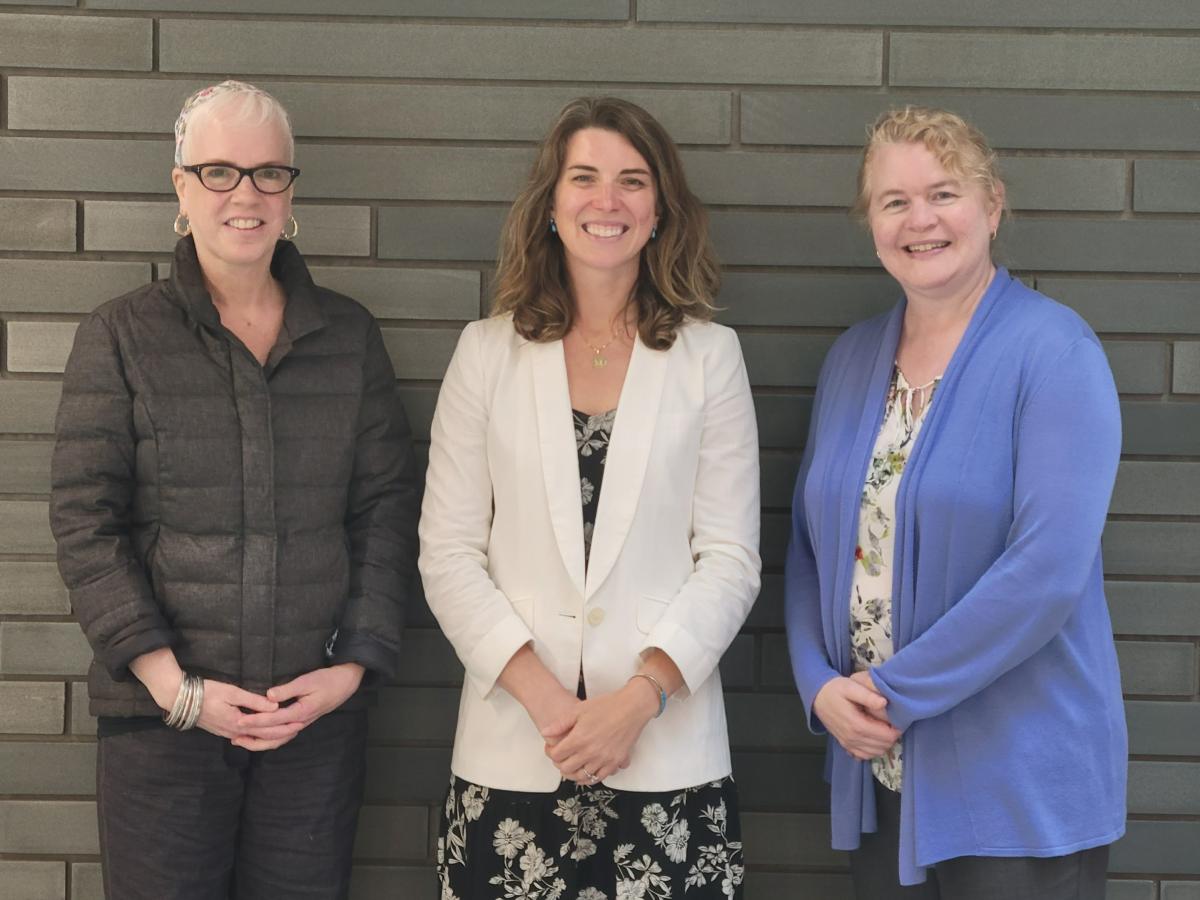 The CUS/ACRL-NJ Newsletter is edited by Joan Dalrymple, Reference and Instruction Librarian at Bergen Community College; Katie Maricic Cohen, Interlibrary Loan, Reference and Instruction Librarian at Ramapo College of New Jersey; and Liz Siecke, Reference and Instruction Librarian/Serials Coordinator at Ramapo College of New Jersey.
The CUS/ACRL-NJ Newsletter is edited by Joan Dalrymple, Reference and Instruction Librarian at Bergen Community College; Katie Maricic Cohen, Interlibrary Loan, Reference and Instruction Librarian at Ramapo College of New Jersey; and Liz Siecke, Reference and Instruction Librarian/Serials Coordinator at Ramapo College of New Jersey.
This semester we welcome Rachel King to our editing team! Rachel is the Online Services & Scholarly Communications Librarian at the Cooper Medical School of Rowan University.
Editors Liz Siecke, Katie Cohen and Joan Dalrymple pose for a picture at Ramapo College's George T. Potter Library in Summer 2022.

